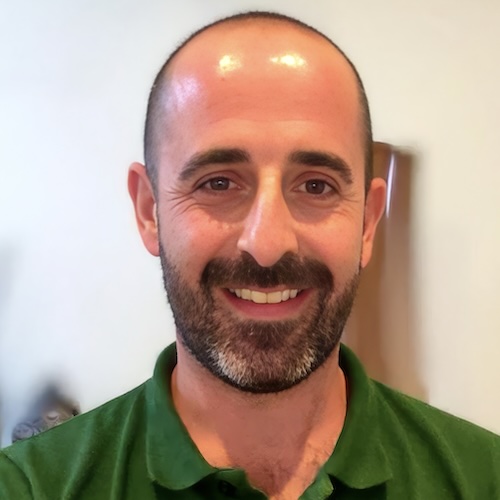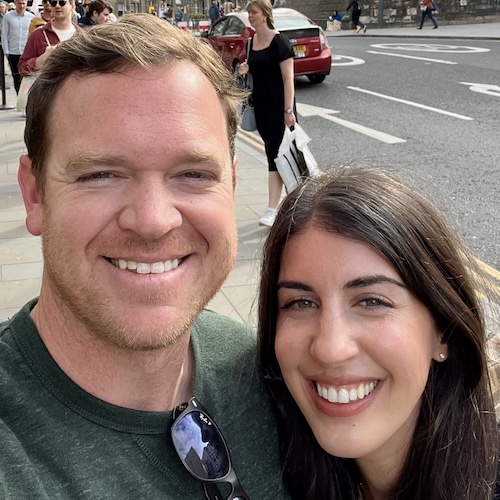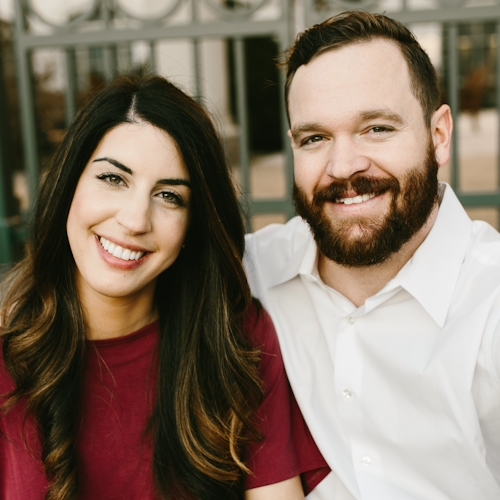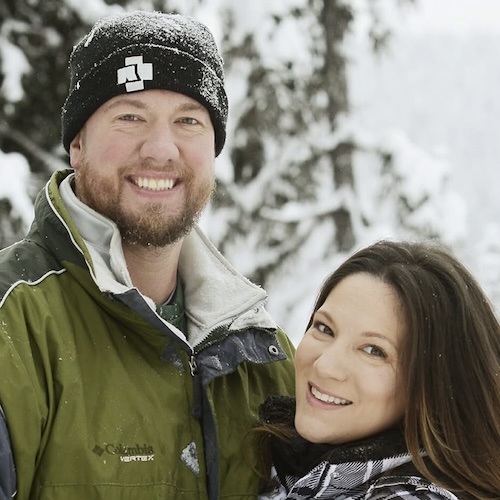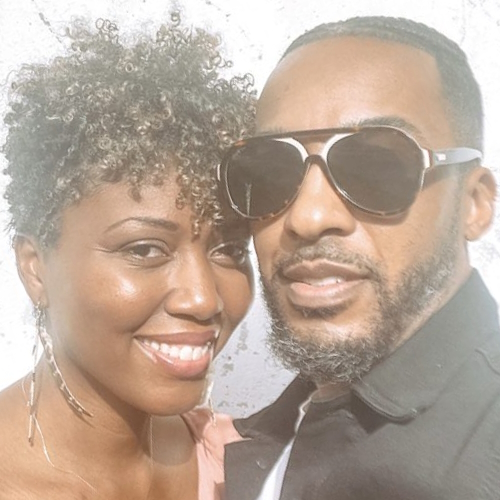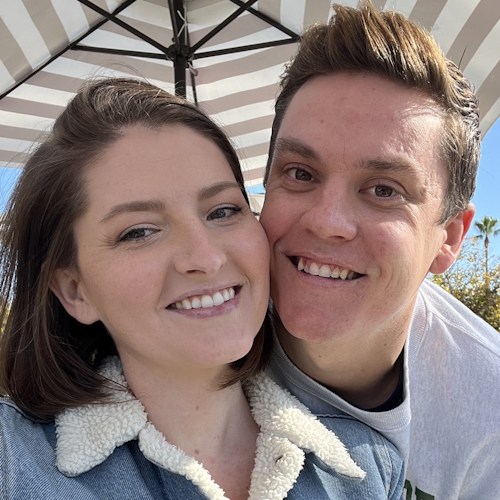Carley’s Caregiver Story
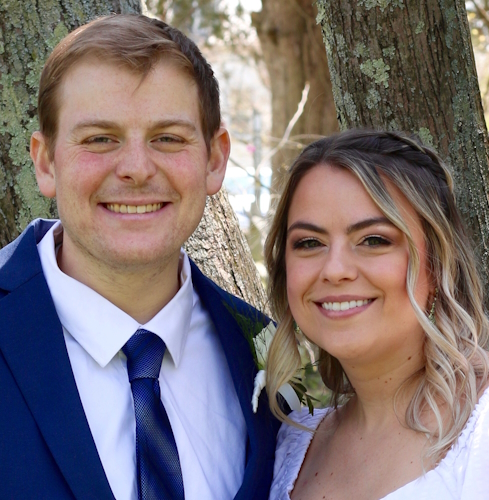
Carley’s husband, Josh, was diagnosed with stage 4B Hodgkin’s lymphoma at 26. After experiencing subtle symptoms that eventually escalated, a trip to the emergency room, a lymph node biopsy, and a PET scan determined he had cancer.
Overnight, Carley took on the role of caregiver, navigating through cancer and providing Josh the support and care that he needed — not a typical life for a young, newlywed couple in their 20s.
She shares how she processed the diagnosis, how she coped with the ups and downs of being a family caregiver, and how she readjusted to life after cancer. She highlights the importance of finding support as a caregiver and trying to take care of yourself.
In addition to Carley’s narrative, The Patient Story offers a diverse collection of caregiver stories. Spouses and partners of former cancer patients share their own experiences from processing a diagnosis to undergoing treatment and side effects.
This interview has been edited for clarity and length. This is not medical advice. Please consult with your healthcare provider to make informed treatment decisions.
The views and opinions expressed in this interview do not necessarily reflect those of The Patient Story.
- Introduction
- Noticing the initial symptoms of Hodgkin’s
- Coping with a cancer diagnosis
- Seeing a therapist for mental health support
- Shifting to the caregiver role
- Ups & downs of being a caregiver
- Reaction to no evidence of disease
- Readjusting to life after cancer
- Regaining independence from each other
- In sickness & in health
- Keeping watch
- Dealing with scanxiety as a caregiver
- Finding a caregiver support group
- Discussing fertility options before cancer treatment
- Words of advice to family caregivers
Introduction
My name is Carley and my husband Josh was diagnosed with stage 4B Hodgkin’s lymphoma in May 2022. Luckily now, he’s in full remission and doing well.
I was his primary caregiver at the time. I took on the role almost immediately.
We were actually boyfriend and girlfriend. We had been together for seven years or so. My birthday is April 29th and he was planning to propose on April 30th. We had a day trip planned. His sister was going to take pictures. We had the engagement ring hiding in our basement.
The day that we went to the emergency room, we came home and after we made some phone calls, we went down to the basement. He pulled out the ring and told me he doesn’t want to go through this with anyone else. We were engaged for a few days.
To benefit us and protect us through this entire journey, we decided it would be best to go into this as husband and wife. We got married in a very small ceremony with just our parents.
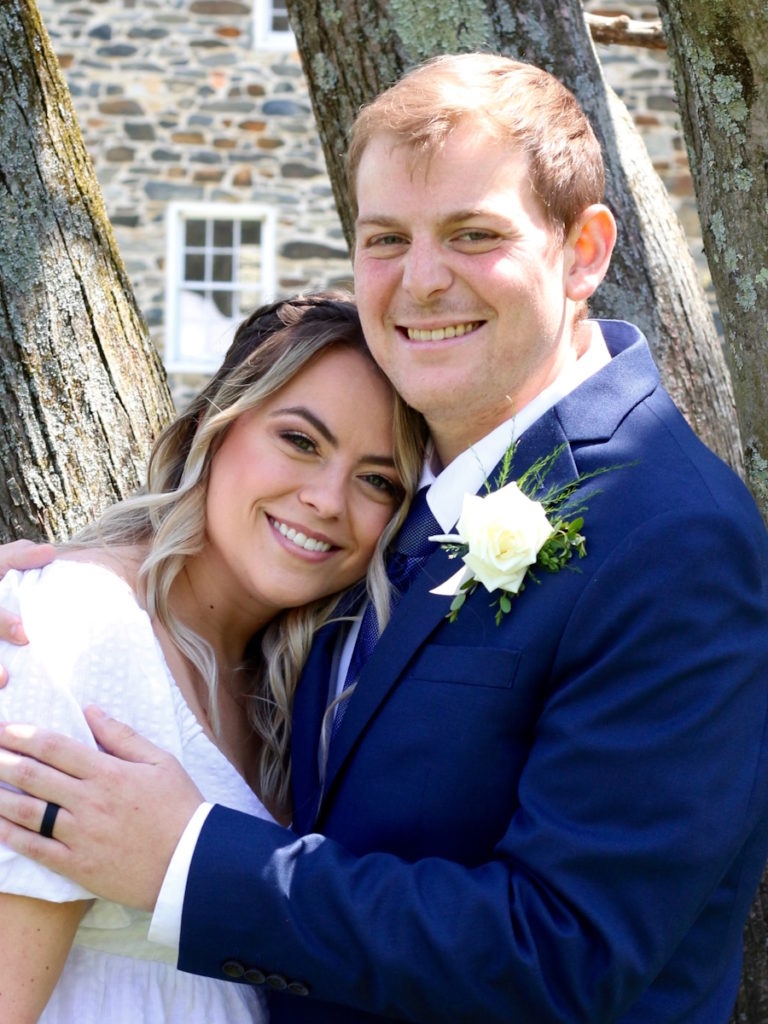
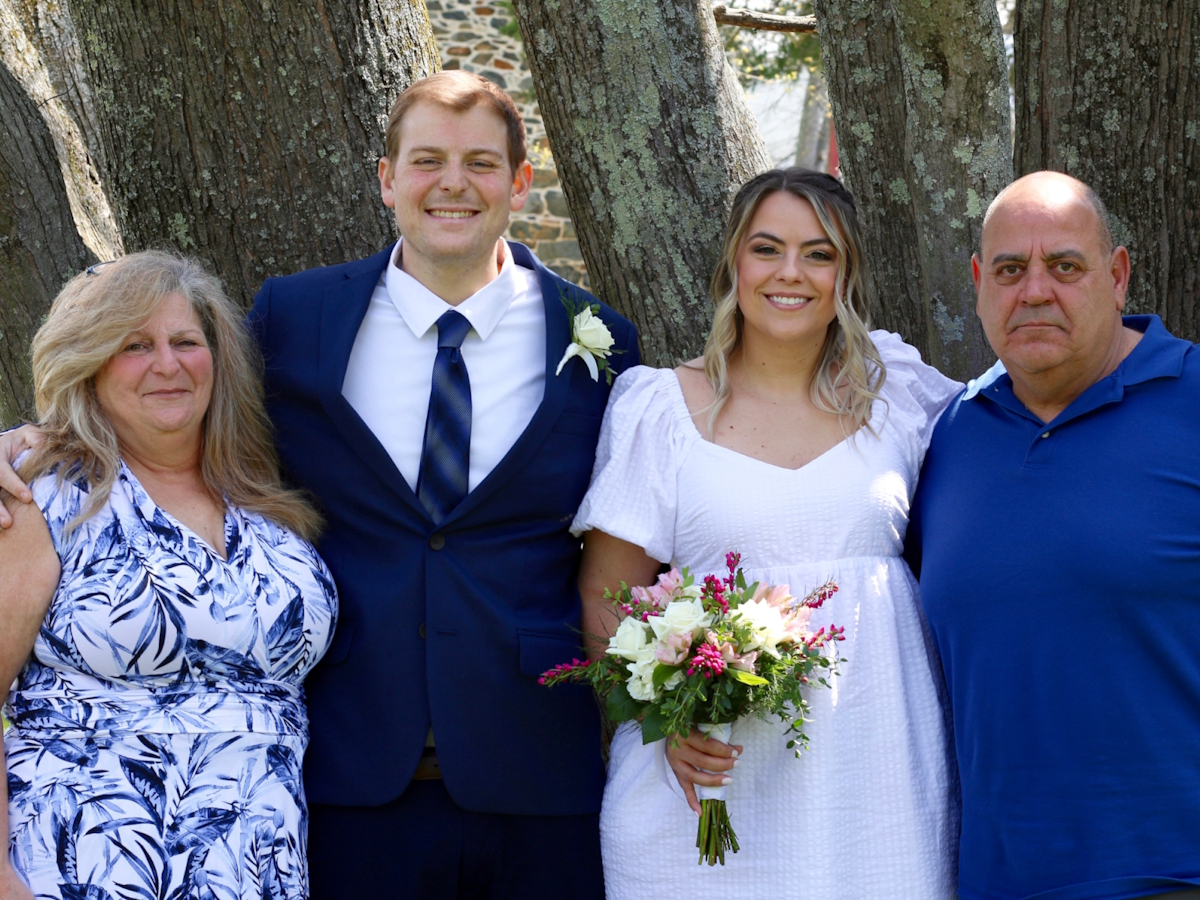
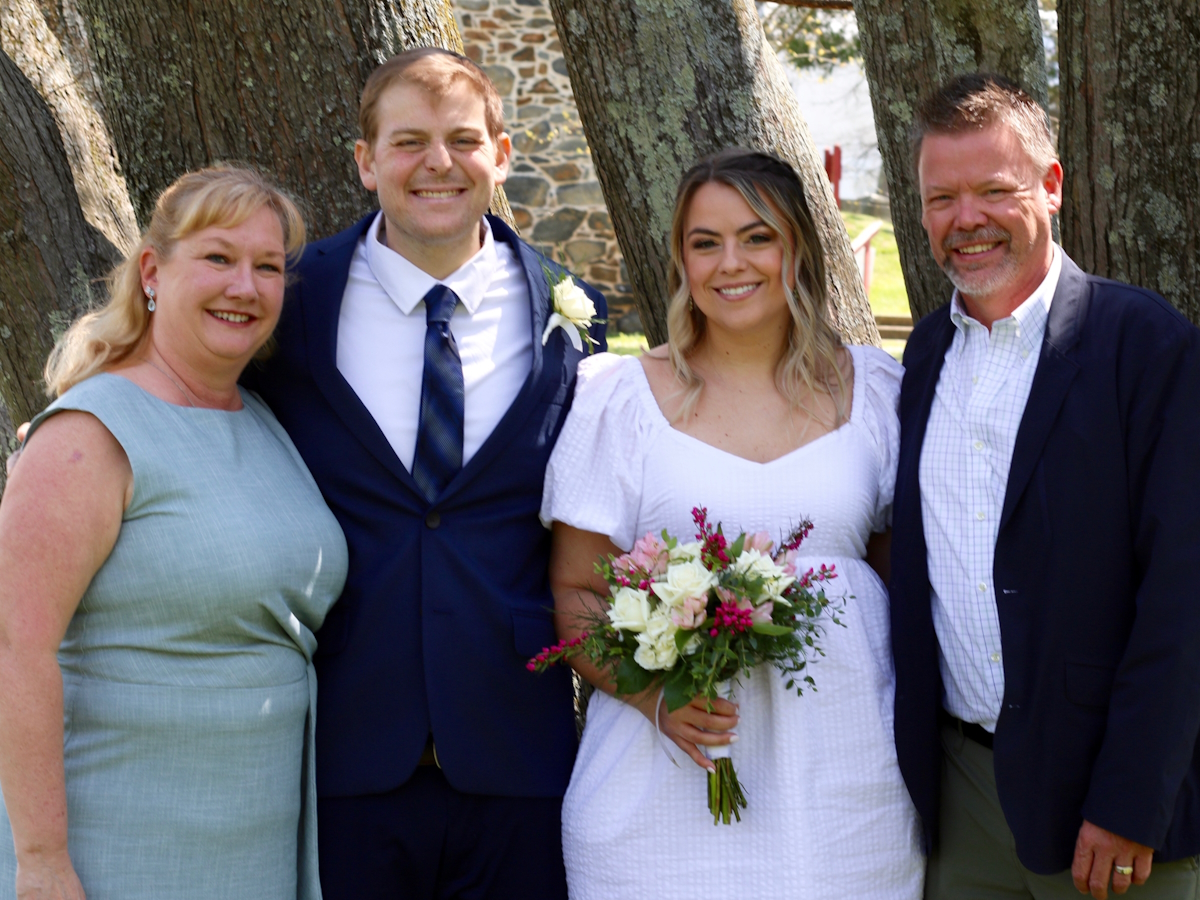
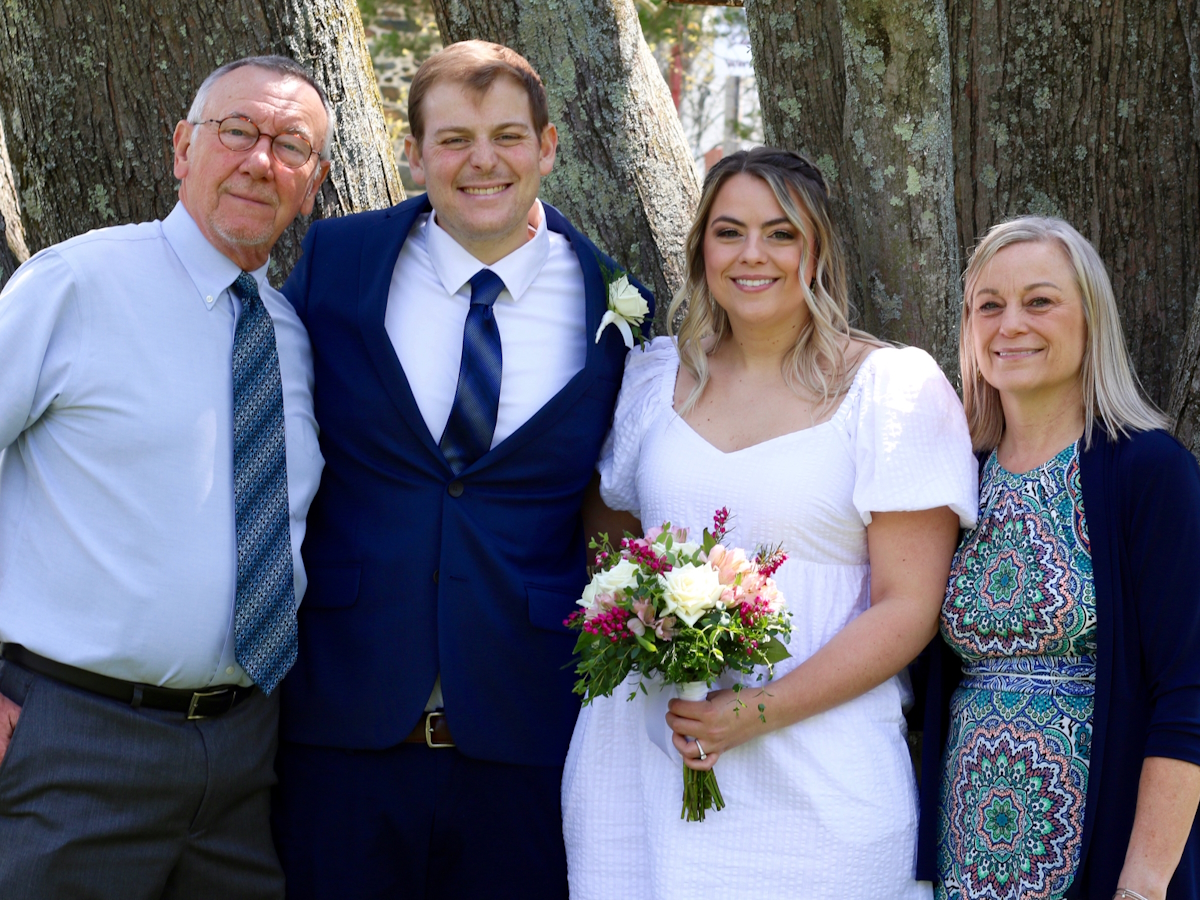
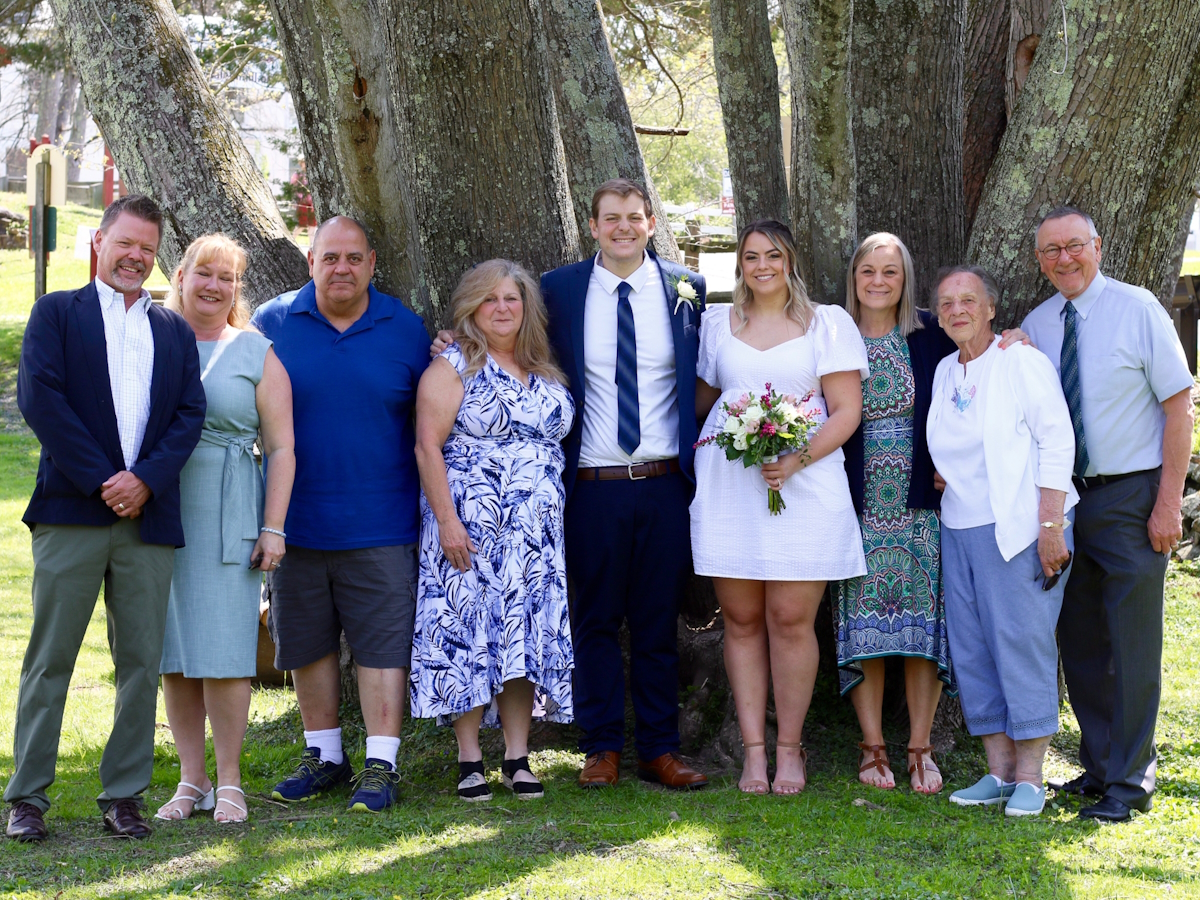
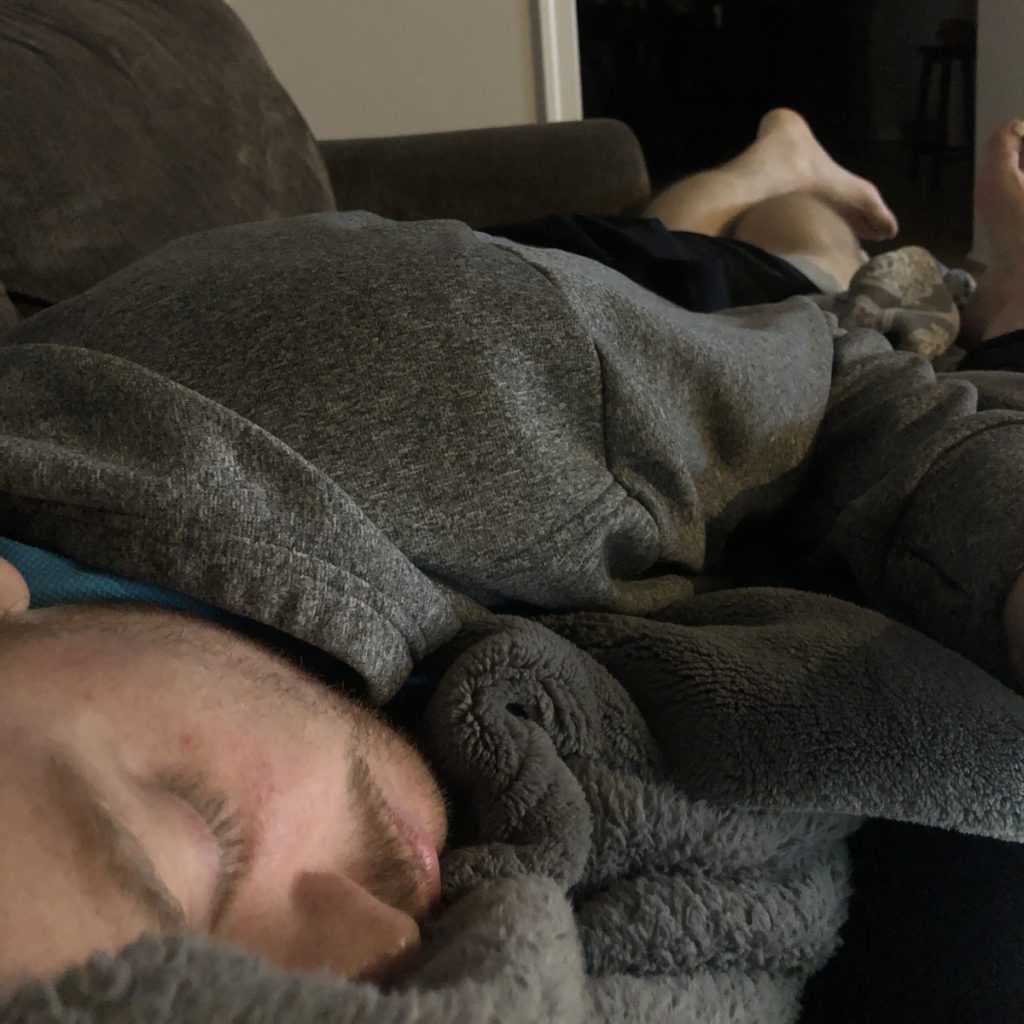
Noticing the initial symptoms of Hodgkin’s
In April, a few people brought up that he didn’t look very well. He was having a lot of symptoms of [what] we now know was Hodgkin’s lymphoma. We decided to go to the emergency room to get things checked out.
The ER doctor essentially told us it was very likely that he has Hodgkin’s. He was officially diagnosed in May.
He did 12 rounds of chemo. He’s had a few PET scans since his treatments ended and he’s doing really well.
We tried to backtrack: when did this start? I don’t think we’ll ever actually figure it out.
He was experiencing a fever [and] not feeling well. We both remember St. Patrick’s Day 2022 was the first time where he had some sort of symptom happening.
Some of his other symptoms were itchy skin and we chalked that up to wintertime and dry skin. He also was anemic so he was really cold all of the time and not able to regulate his temperature.
He lost about 10 pounds, which we didn’t think much of. He had a pretty large lymph node in his clavicle that popped up overnight. He ended up having a lymph node pressing against his trachea, which was causing shortness of breath.
Once we figured out that he had Hodgkin’s lymphoma, it made so much sense because he had every single symptom. If you were to Google all the symptoms, you could check off every single one.
We were with friends on Easter weekend. I was actually pulled aside by some of my friends and they told me that he looked yellow. At that point, his symptoms started coming together and we knew something was going on.
He had a doctor’s appointment scheduled. He bumped it up sooner. When they told me that he looked yellow, that definitely sent off some red flags in my head. I don’t think I noticed it because I live with him and see him every day.
On Easter Sunday, I went to my mom’s and he went to his parent’s house and they all identified that he didn’t look right. His dad saw his lymph node and said, “Something’s definitely going on.” His sister is an emergency room nurse so she suggested, “Come up to my hospital and we’ll take a look. We’ll run some labs and see what’s going on.”
All of it was a hard reality. I still don’t know if we fully have wrapped our heads around what’s happened. Everything happened so fast.
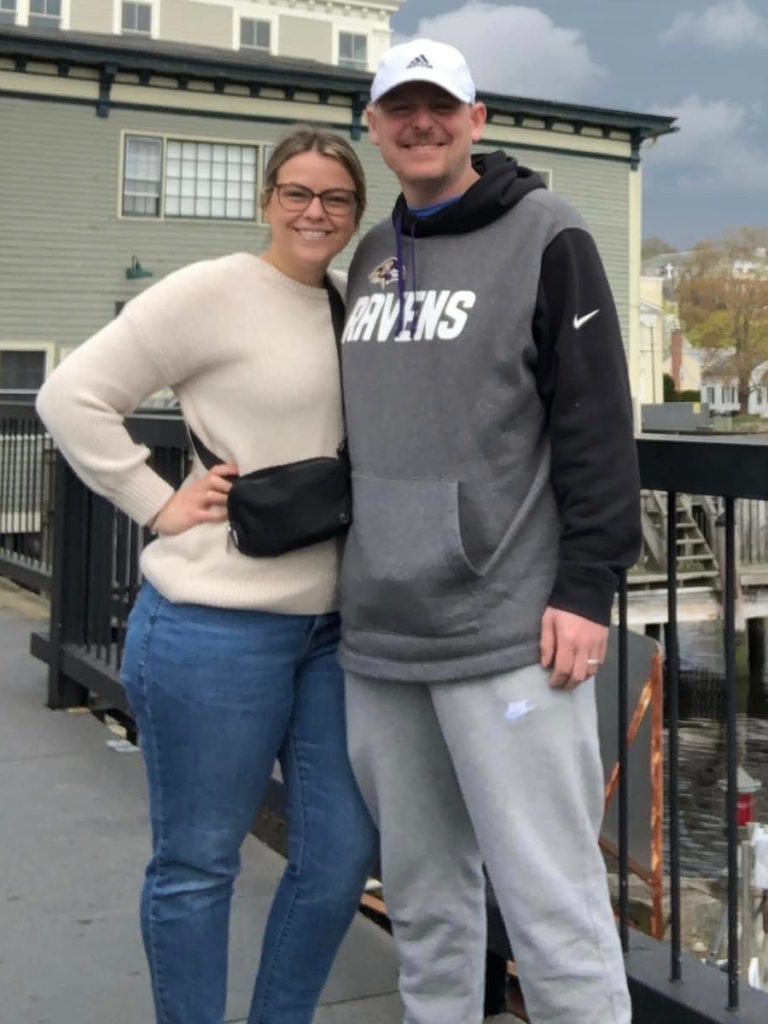
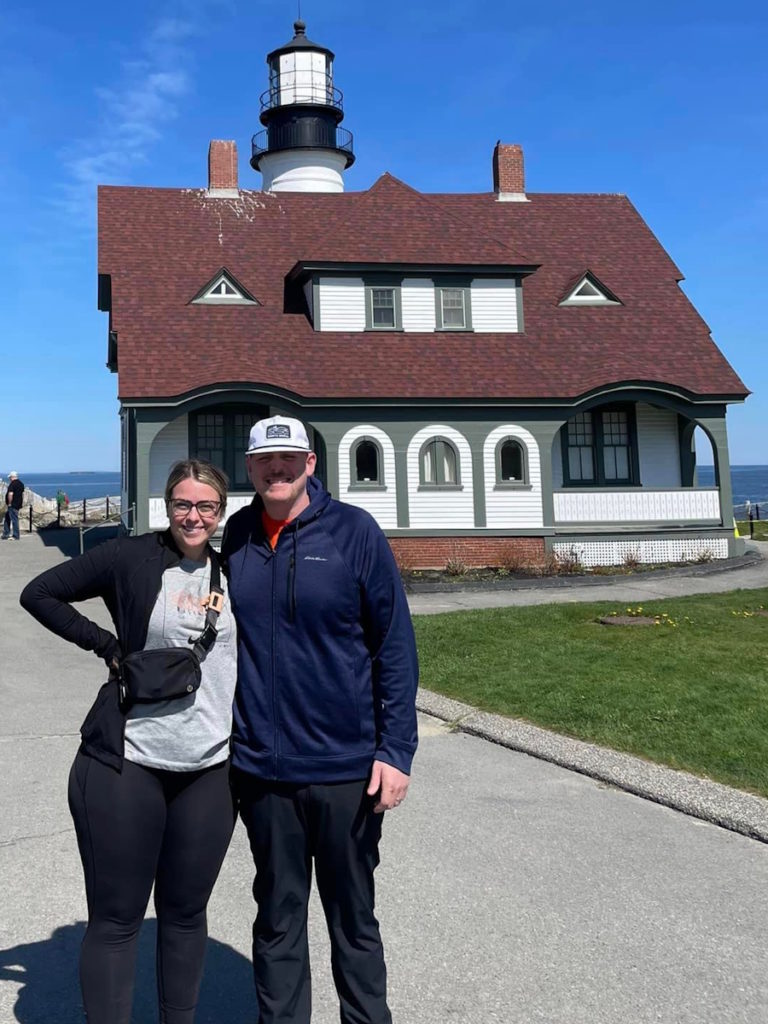
My family works in the medical field as well and I was telling them all of the symptoms that he was experiencing. We called the lymph node “the lump” at the time. My stepdad said, “It’s one of three things. It’s a lipoma, a lymph node, or a tumor — and you really want it to be a lipoma.”
I mentioned to my mom, “I might take some time off work.” She said, “Maybe save that time. You might need it.” I don’t know if they knew, but I think they knew something was going on.
The day after, I woke up out of my sleep and got on my phone, which I never do. I got on TikTok and the first video that popped up was someone standing in a hospital gown and it had all of his symptoms, which were the same things that Josh was experiencing. Then it cut to the next picture and it said he had stage 4 Hodgkin’s lymphoma, which turned out to be exactly what Josh had.
This is definitely not good. I realized this might be worse than we thought, but I still had a lot of hope driving to the hospital, sitting there, and waiting for the results.
I even told Josh, “We’re going to leave there, feel silly that we even went, and have a big medical bill that we have to deal with.” But, unfortunately, it was cancer.
I don’t think I really wrapped my head around that or thought that was a possibility. I just kept thinking, It’s going to be okay. Everything’s going to be fine.
Coping with a cancer diagnosis
It was definitely hard. On his first day of chemotherapy, we were supposed to be going to Florida for a vacation and he ended up in the chemo chair.
All of it was a hard reality. I still don’t know if we fully have wrapped our heads around what’s happened. Everything happened so fast. So much happened in less than a year.
When we found out that he had cancer, we didn’t Google anything. We weren’t looking anything up because we didn’t want to scare ourselves.
As we got to know the oncologist and some of the doctors in the office, they all assured us. They say it’s the best kind to have because it’s curable so that stuck in my mind at least and I think in his, too.
The fight’s not easy. The treatment is definitely not easy, but the cancer is one that is curable. The ER doctor actually said to us, “If you get cancer, this is the one you want.” I don’t think anyone wants cancer, but I guess that’s their way of trying to help [you] realize that it isn’t the worst type and it’s curable. But it was hard to hear.
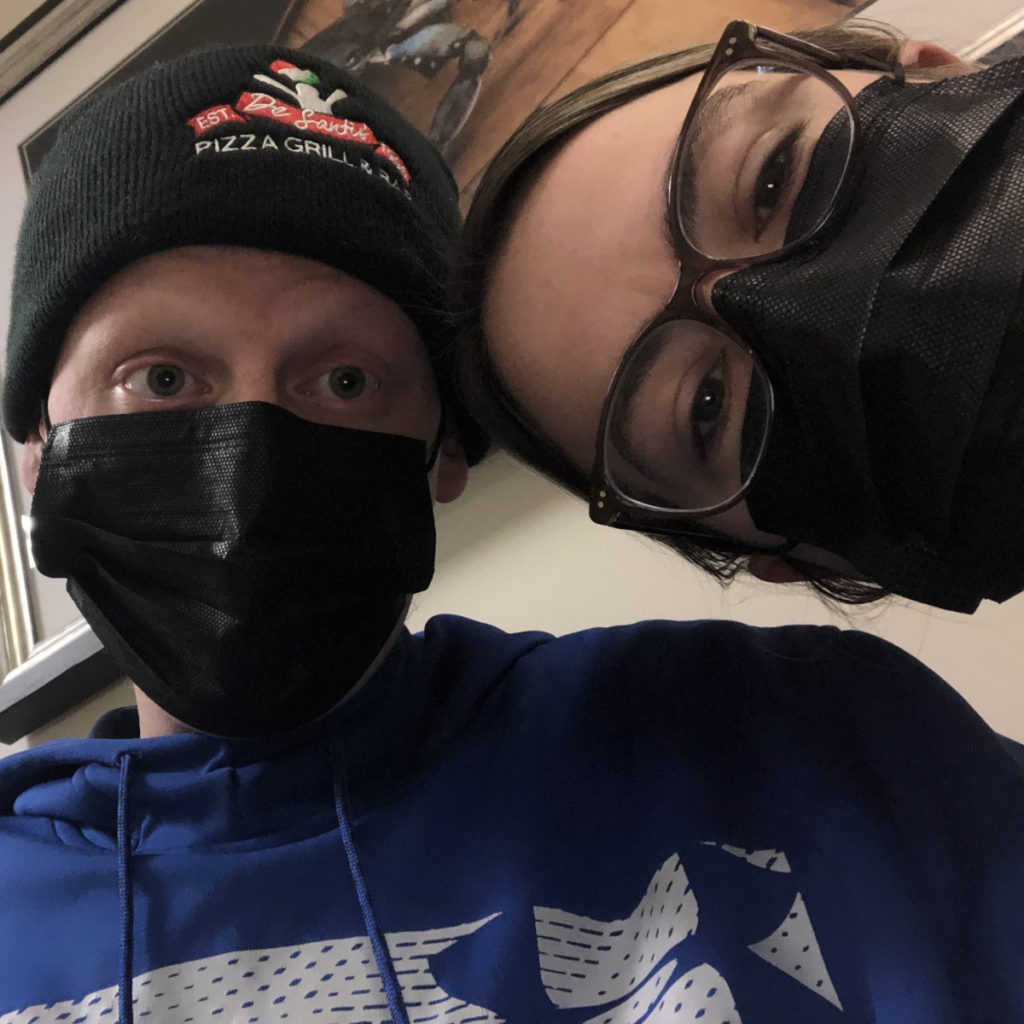
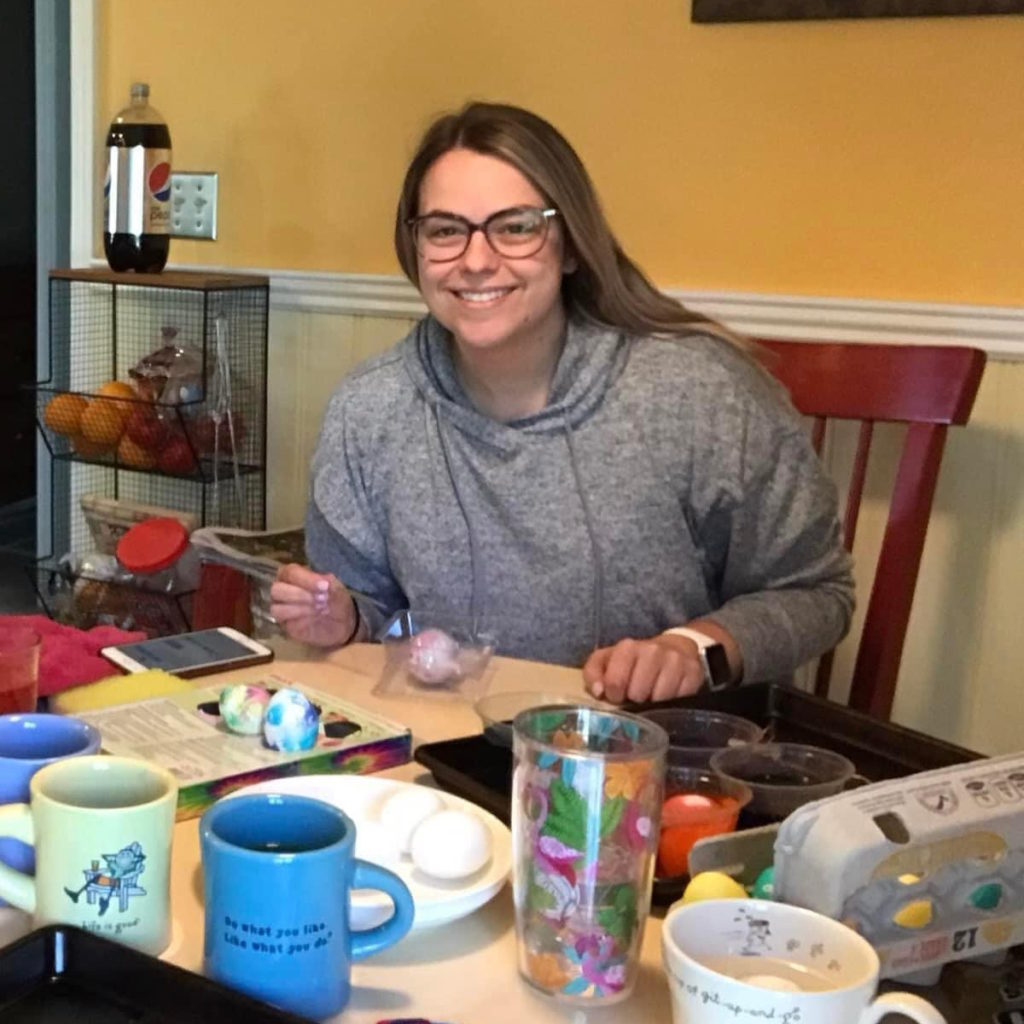
Seeing a therapist for mental health support
I go to therapy a lot. My therapist definitely helped with navigating a lot of my feelings and emotions around Josh’s treatment and his cancer.
I was actually going to therapy before his diagnosis. I started in January and we knew something was going on in April so I was established with my therapist. She already knew about my background, about Josh, and a lot of things in my life so that was definitely so beneficial.
I would recommend [getting] a therapist, especially going through something like this, whether you’re a caregiver, a patient, [or] a parent. There are so many feelings that you have and you have to keep them in check.
Most of the time, I would work in the room where he was so he could have someone with him because it was isolating and lonely.
Shifting to the caregiver role
Caregiving was definitely an adjustment. Josh and I lived together, but we were both very independent. We had our own roles in our house. He does a lot of the cooking and grocery shopping; I didn’t really handle any of that. Overnight, I took on everything.
I know not everyone’s in this position [but] I made it very clear, “Your job is to get better. That’s your full-time job. You take care of yourself and show up for yourself. That’s all you have to do. I’ll do everything else.”
Luckily, he didn’t have to work so he was home every day from the day that he was preliminarily diagnosed at the ER to a little bit after his last treatment.
I took care of pretty much everything with a lot of help. I couldn’t have done it without family and friends that surrounded us, lifted us up, and helped us.
I worked the entire time. My work was very supportive. Josh’s work was very supportive. We also couldn’t have done this without them, for sure.
I worked from home Monday through Friday so I was able to be here giving him his medicine and making sure he was eating breakfast and drinking water. If he needed anything, whether it was needing something physically [or] emotionally, I was available.
Becoming a caregiver overnight was hard. You’re in survival mode from the time you hear what’s going on until treatment ends and living in survival mode for so long was definitely a challenge.
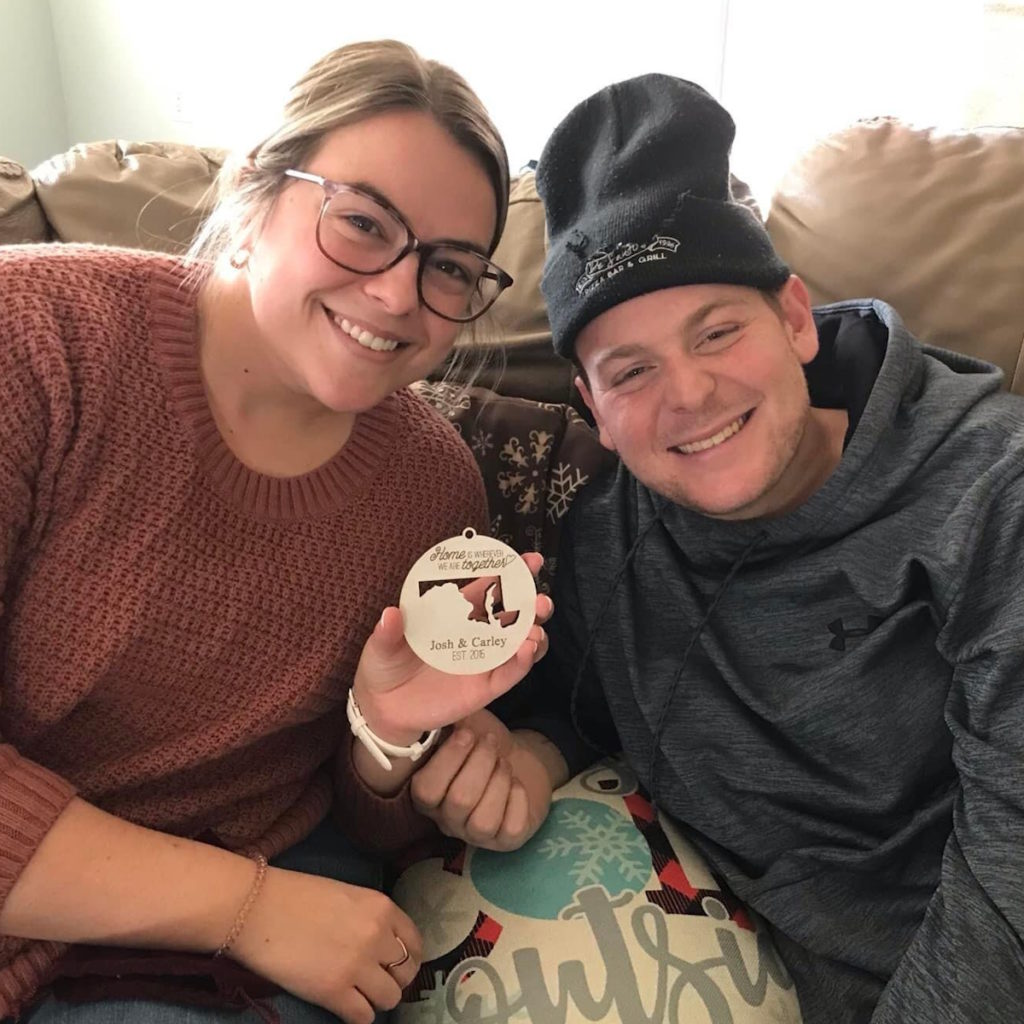
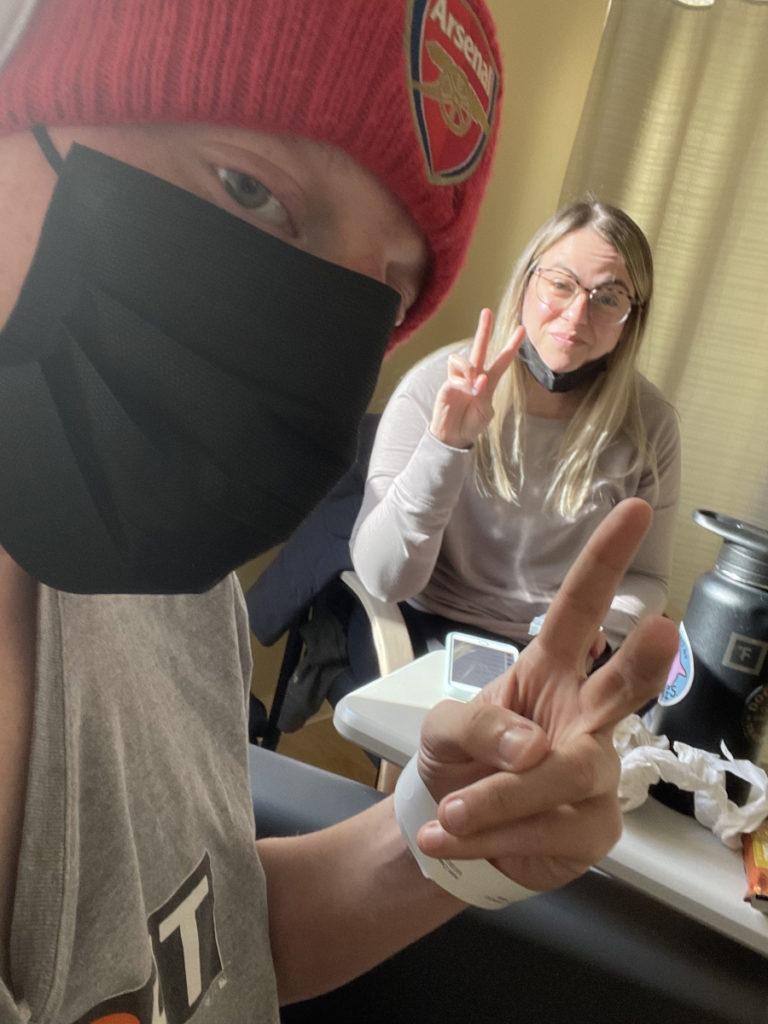
Most of the time, I would work in the room where he was so he could have someone with him because it was isolating and lonely.
There were times [when] I would have to go into the office. I’m very lucky to have the family and friends that we have. Family would come over and hang out with him if I had to go somewhere or do something.
I did all of the grocery shopping and cooking even if it wasn’t very good. We utilized a lot of resources. I would do grocery pickup orders so I wasn’t spending time walking around the grocery store. We use things like a meal kit delivery service, which were just helpful.
A lot of [our] family would bring over meals so we wouldn’t have to worry about making something every day. The grocery pickups were definitely helpful and even our families would pick up things for us when needed.
We were at the house majority of the time. [With] COVID, we wanted to be really careful so we didn’t go out and do much. I didn’t want to get something and bring it home to him.
When I did leave and go to a store, I would always wear a mask and really try to protect myself. My parents got us really nice air purifiers to keep the air in our house clean and to keep Josh as safe as possible during everything.
What to remember when your partner is diagnosed with cancer »
Ups & downs of being a caregiver
Becoming a caregiver overnight was hard. You’re in survival mode from the time you hear what’s going on until treatment ends and living in survival mode for so long was definitely a challenge.
It was a lot. I feel like I probably didn’t take care of myself as much as I should have and I don’t think many caregivers do.
Josh would encourage me to do things, especially in the beginning. He paid for me to get a massage and a facial, which I will forever appreciate.
But as treatment went on, it got a little bit harder to care for myself and make sure I was doing things that I needed to.
I wasn’t leaving the house, which can be a challenge. I didn’t want to leave him alone. I wanted to support him in any way possible so we were together a lot. We have a dog and two cats. I would walk the dog around the block.
I met with my therapist once a week for an hour to talk about me, Josh, and what was going on. She always gave me great advice on how to care for myself and what I need to work on until we meet again so that was always helpful.
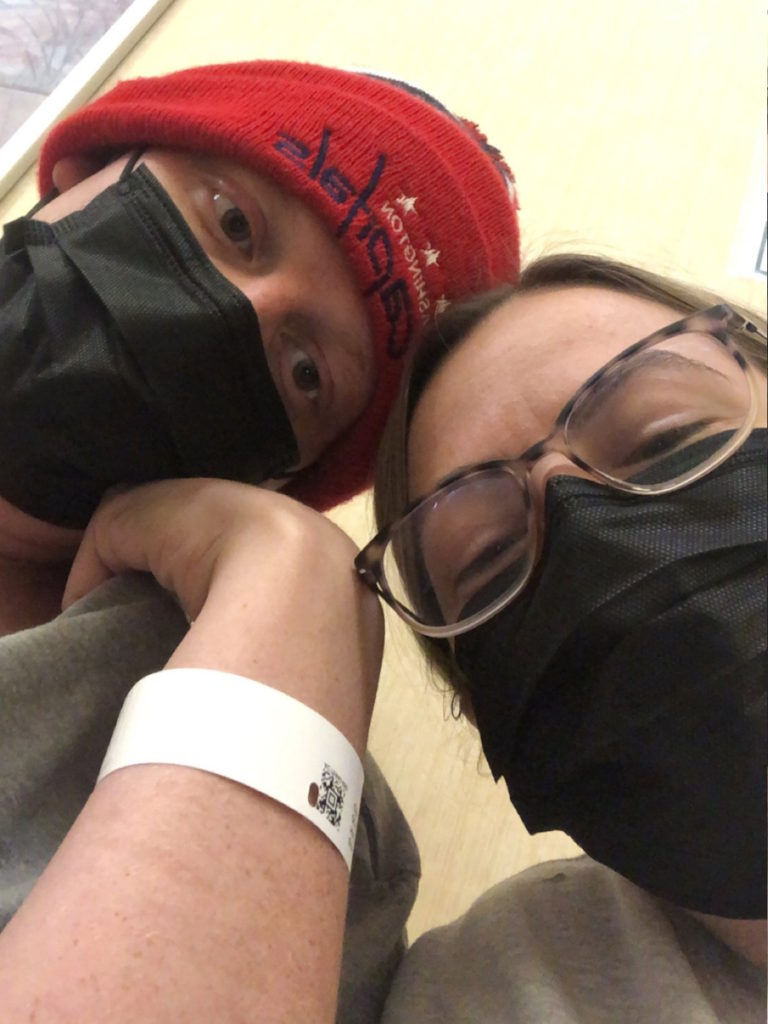
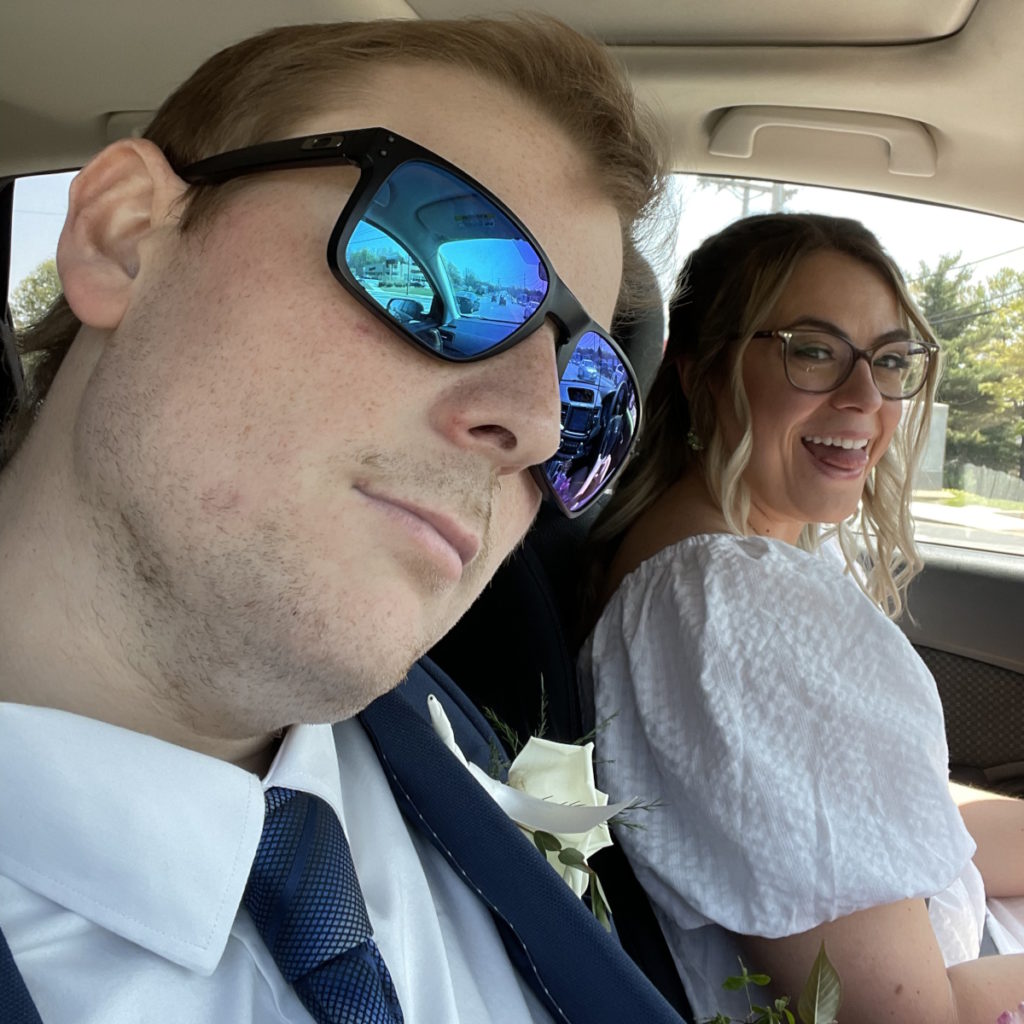
When I did leave the house, I tried to take advantage of it. I had a caregiver card for medical marijuana, which was legal in our state and a big help for Josh. I would go to the dispensary once a week. I would drive with the windows down, listen to some music, and try to enjoy a few minutes out of the house.
I’ve never cared for a parent [or] a grandparent. No one in my family and Josh’s immediate family has been sick to the point that [we] needed to help out in any way. Cancer was so new to us.
I learned a lot about the medical field, health insurance, Hodgkin’s lymphoma, and chemotherapy. I call it knowledge that I never, ever wanted but now I have so much of it. It was definitely a hard transition. I found myself Googling all the time.
Luckily, the hospital where Josh went gave us this big binder that has a lot of questions and answers. We were able to utilize that a lot. We had to utilize a lot of resources like calling the doctors on the weekends or asking a lot of questions when he was going to treatment.
I even found some challenges after treatment. I found myself feeling protective. We would go out to a bar and I’m looking around to make sure everything’s okay. It was hard for me to realize he was going to be okay.
Reaction to no evidence of disease
We got that phone call after his sixth treatment. I was in the room with him and I heard them say, “No evidence of disease.” I just fell to the floor and cried.
You see someone go through all these awful side effects from chemotherapy. You hope it’s working. I’ve never been so happy and thankful to know that it was working.
He was actually feeling better. His lymph node was going down. The symptoms from the cancer were going away, but the side effects from the chemotherapy were increasing.
In the back of our minds, we thought, This is going to be good, but we never expected it to be that good only halfway through. Once his treatment ended, he got another PET scan; that one was also no evidence of disease.
It’s such a great feeling to know that all of the work that he put in and everything that he went through, as unfortunate as it is, actually worked and that he is able to live such a good life after treatment.
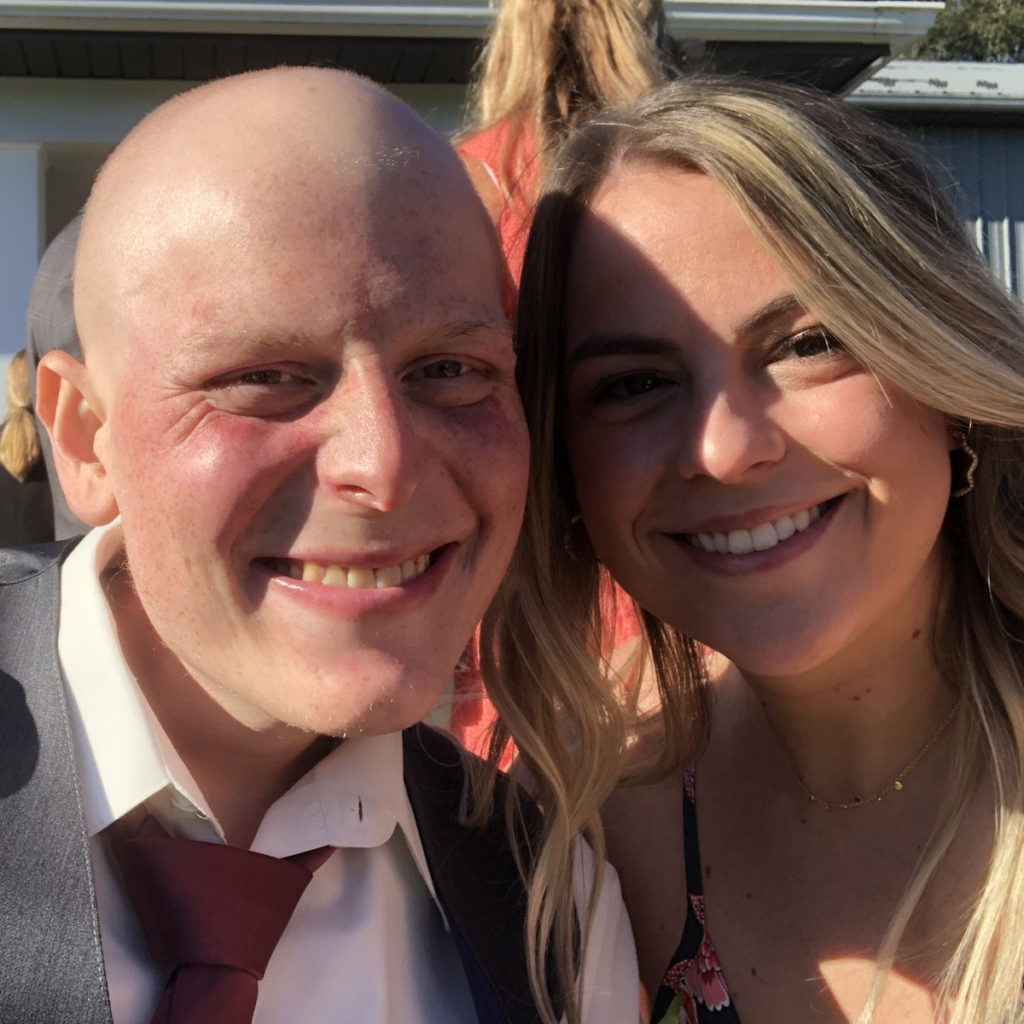
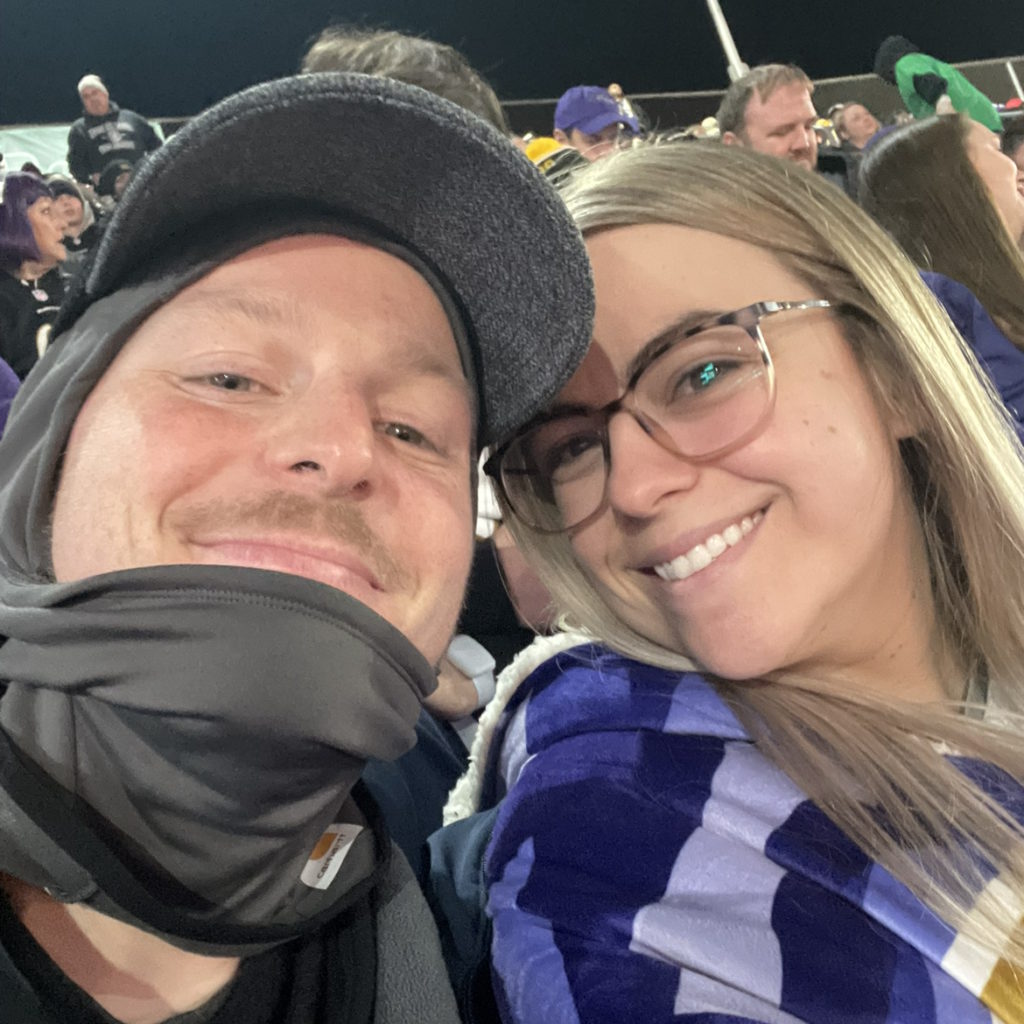
Readjusting to life after cancer
With things being more normal and him being healthy, it’s like, what just happened?
I’m very thankful and so happy that he’s able to get back to normal life, but it was hard. We were together basically 24/7 for months.
He went back to work and he’s able to drive his car now. We have some days where we don’t really see each other until the evenings.
At first, that was really hard for me because I’d miss him. You would think after spending so much time with someone, you would need time away.
As bad as this whole situation was, it brought us so close and we have this bond that we’ll never have with anyone else. I don’t wish this experience on anyone, but a positive that came from this is that we are so bonded and so close.
Regaining independence from each other
When they gain their independence back, you’re kind of lost. You’ve dedicated 24/7 to this person, making sure they’re getting where they need to be, doing what they need to do, and then, one day, they don’t need that anymore. Again, it’s amazing but hard. What do I do now?
I joined a gym, do workout classes, and try to walk the dog more. I try to embrace the independence that I’ve gained.
Even though for most of my life I wasn’t a caregiver, you just get so involved in that role. It becomes your life essentially. It’s hard to transition back, but I’m happy to be back where we are now.
When you don’t have to do that anymore, it’s like finding yourself again, finding your own independence, and doing things that you enjoy and that bring you joy.
I wasn’t able to leave the house for too long [while] he was going through treatment. Now that I’m able to come and go as I please, it’s a newfound sense of independence.
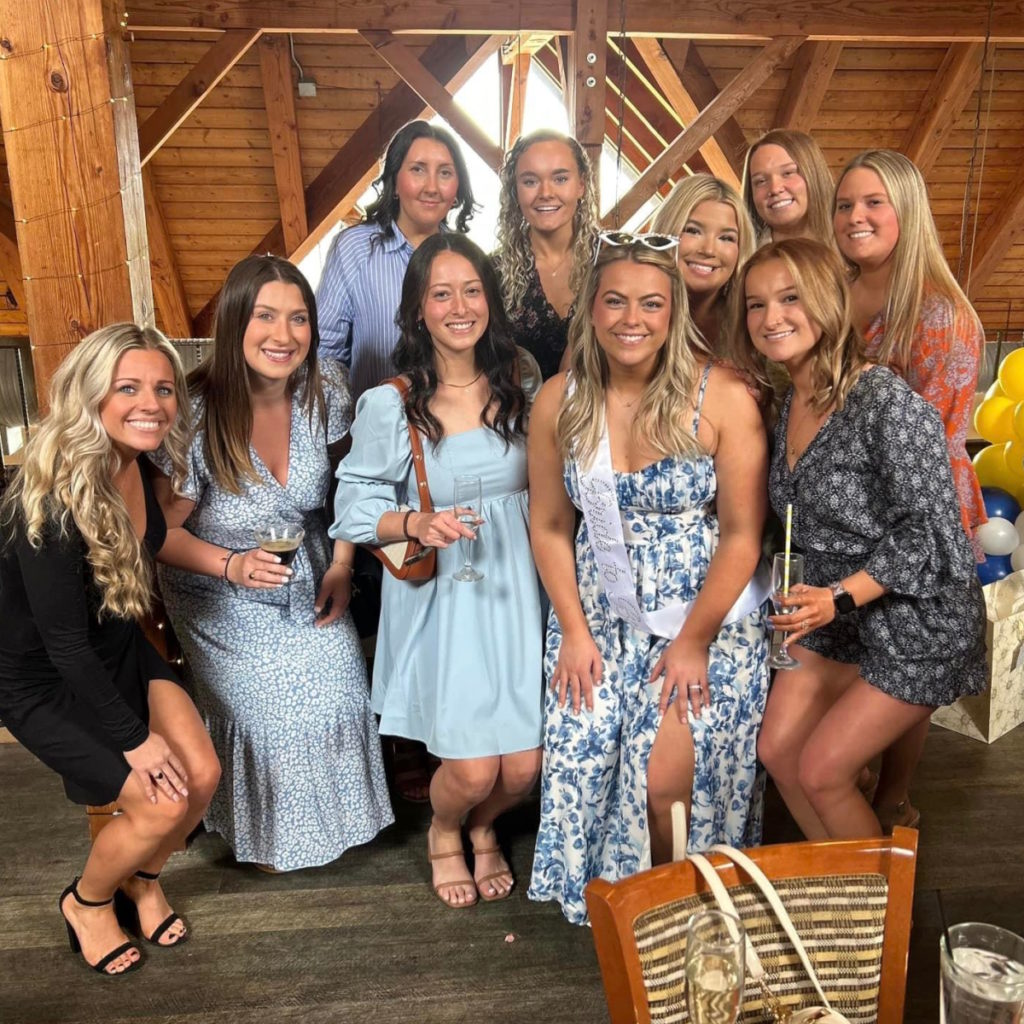
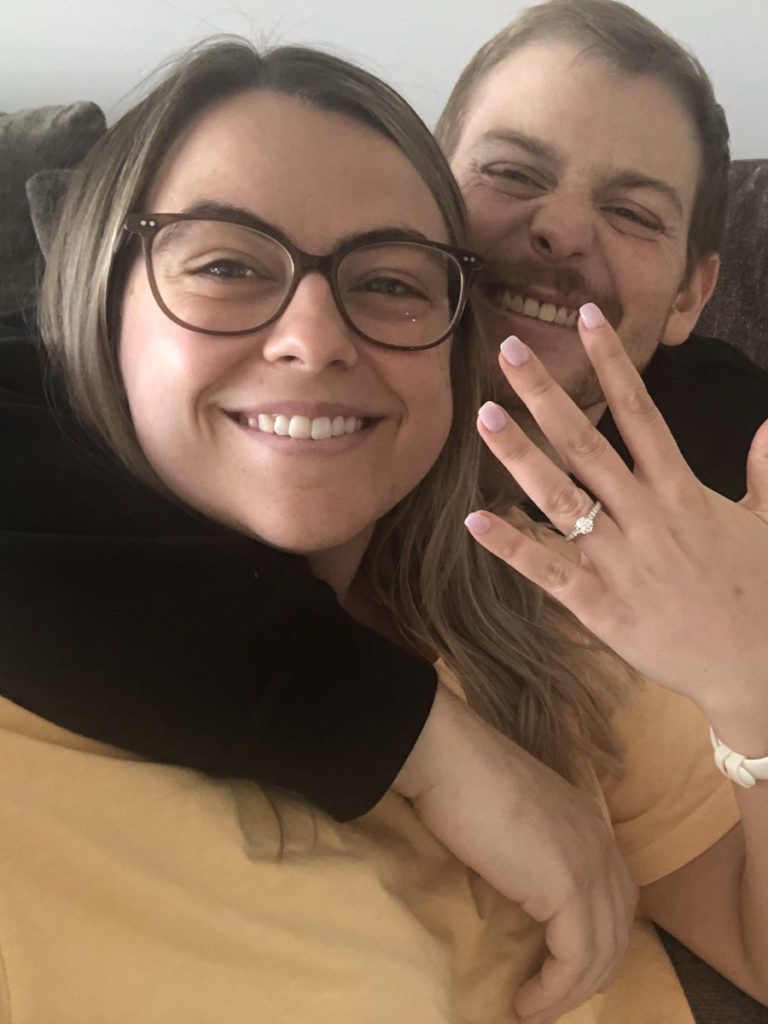
In sickness & in health
When we found out that he had cancer — girlfriend, fiancee, wife, I didn’t care what it was — I was going to be by his side and take care of him.
It’s actually ironic. A month or so before he was preliminarily diagnosed, I was putting lotion on his legs because he had been so itchy. I told him, “If you ever got sick, I would be such a good caregiver.” Weeks later, I became the caregiver.
It wasn’t all rainbows and butterflies. When people get engaged, they have time to plan a wedding, go wedding dress shopping, go to a bachelor and bachelorette party, and have this giant party. We didn’t get any of that and it wasn’t by choice so that definitely was hard.
They always say your first year of marriage is the hardest and that proved to be very true with us. Our first year of marriage was unlike a lot of people’s, I’m sure, especially being so young. We were going into this journey as husband and wife and as patient and caregiver. They were all new territories for us so there were definitely some challenges.
But we have a bond like no other and I know that we can get through anything. When we said our vows, “in sickness and in health” definitely stuck out to me. Marriage or not, I would have been there and done everything I could.
I would do it again if needed. I’m honored to have been able to help him get through such a hard time.
Keeping watch
When the PET scans and blood work come up, I do worry about those. When we go to appointments, it’s always a potential that something could happen. But he’s had great scans and appointments so far. Hopefully, it stays that way.
When we go places, he does his thing. I don’t worry anymore about where he is and what he’s doing. We’re not as dependent on one another, which I think is a good thing.
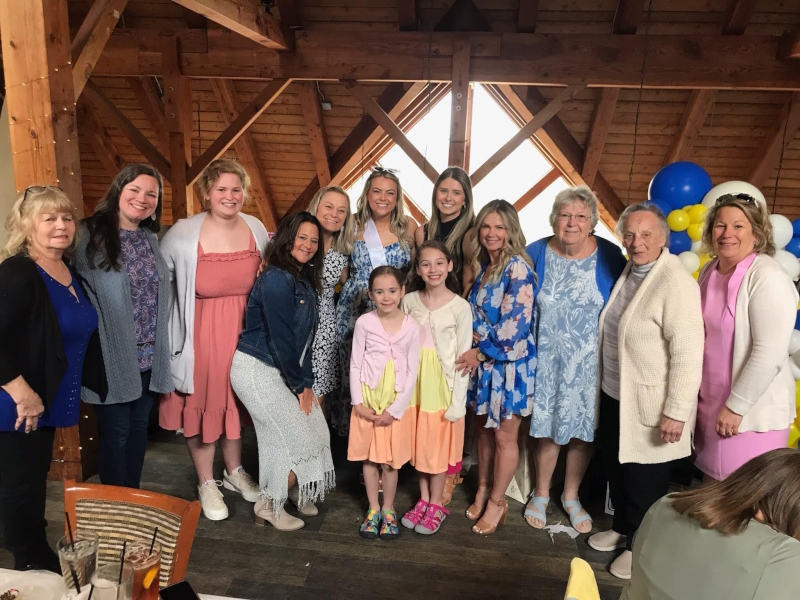
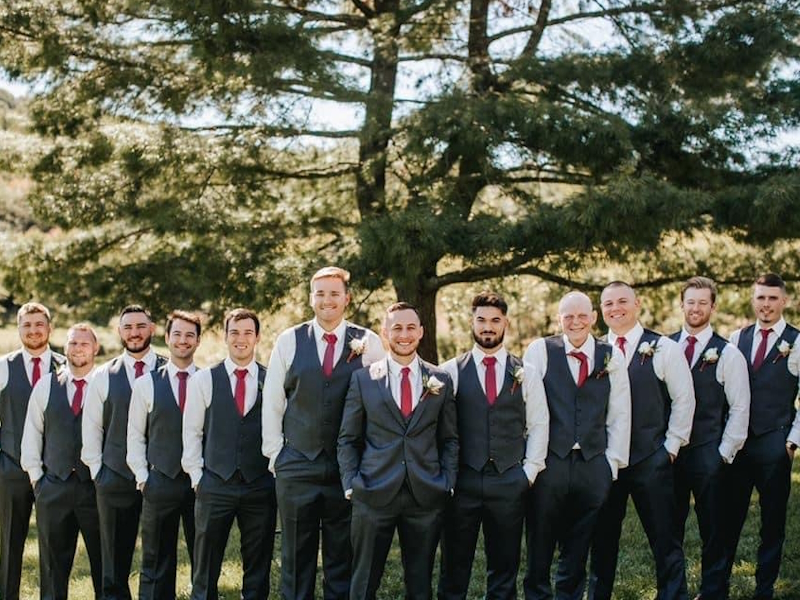
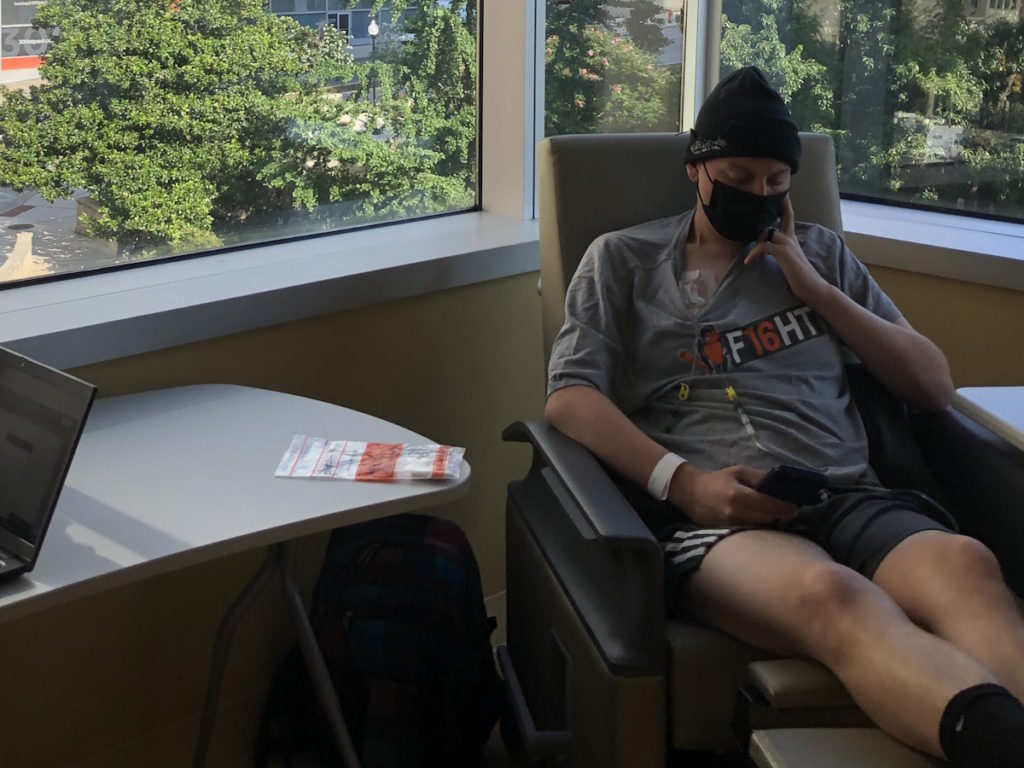
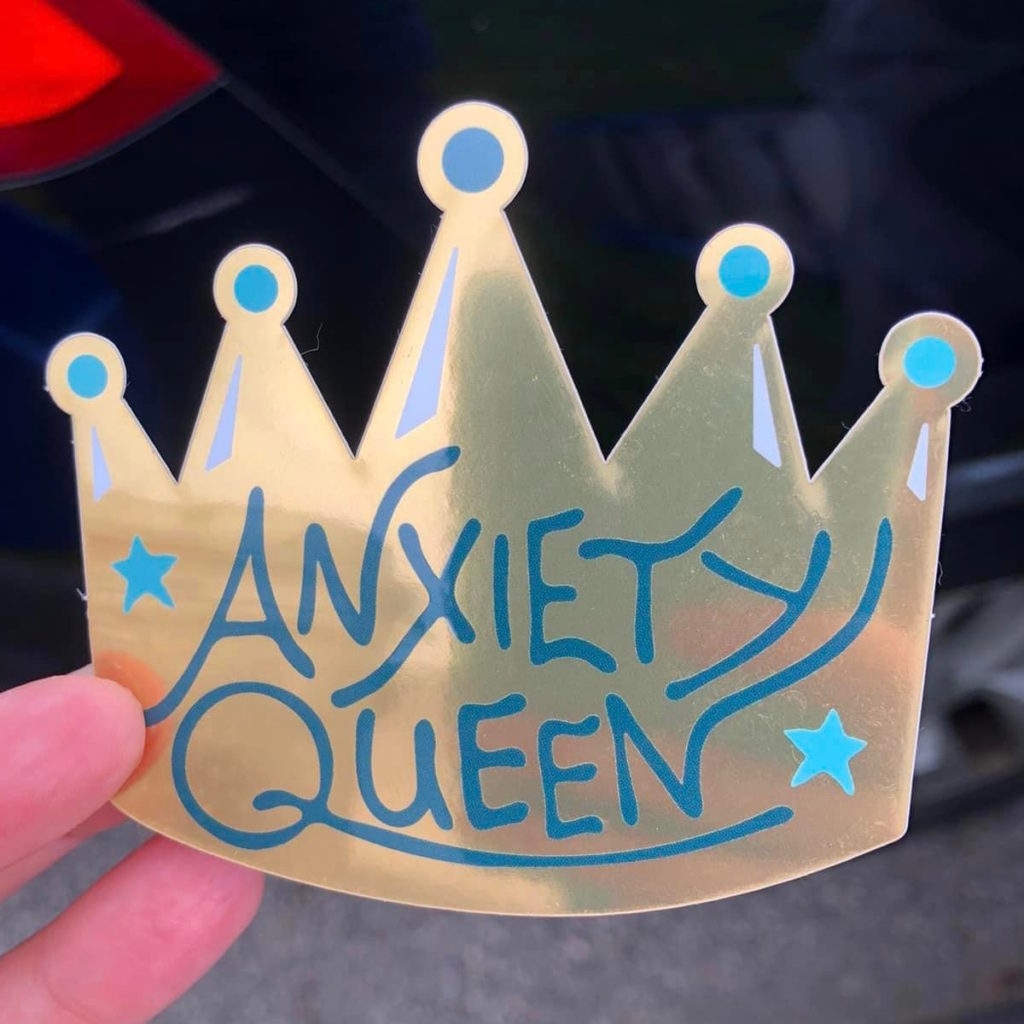
Dealing with scanxiety as a caregiver
For a caregiver, at least for myself, and for Josh also, when you initially get that scan, things are good for a little bit. You don’t really have to worry. You know everything’s the way it should be. As it gets closer to your next scan, that’s when I feel like the anxiety starts to heighten a little bit.
My way of managing my anxiety is helping manage his. We have a lot of discussions about when the scan comes around. I take him to a scan, we ride in the car together, and we ride home together. We’re a duo.
He uses Ativan, which helps calm his nerves. We had a bad experience with one of his scans. He was pretty anxious and he forgot to take Ativan. We tried everything.
We were at the hospital where he got his treatment. We tried to get him some Ativan so he could relax for his scan. [With] PET scans, you have to stay really still and that can be hard when you’re anxious. It didn’t work out so it ended up being a really rough day for him.
I found a travel medication container that fits in my purse. I labeled the little holders with the medication, what it’s for, and how often you can take it. I put Ativan, Queasy Drops, Tylenol, and a few others like Compazine [and] Zofran.
If he had a headache, I could give him some Tylenol. I try my best to help him manage his anxiety, which helps me in a way.
For me, therapy is such a big help, being able to bounce ideas off of an outsider.
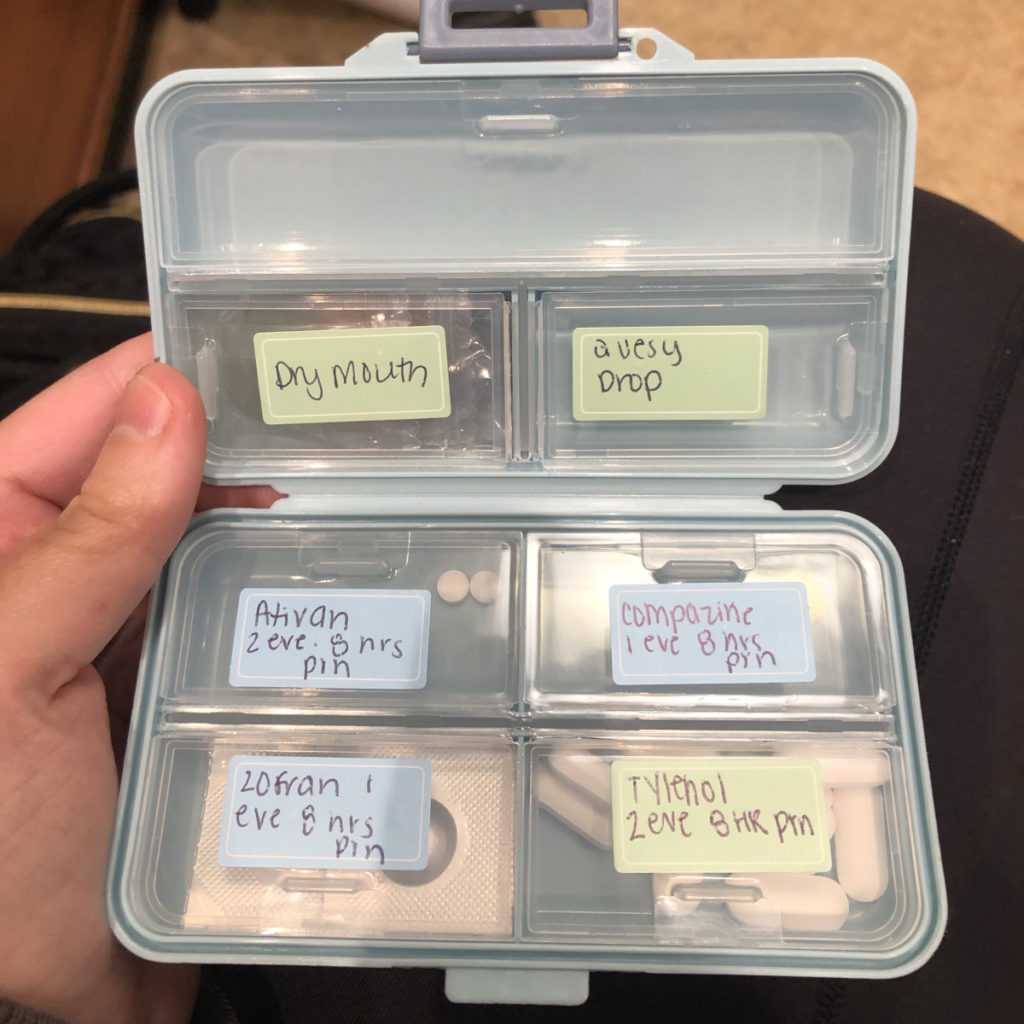
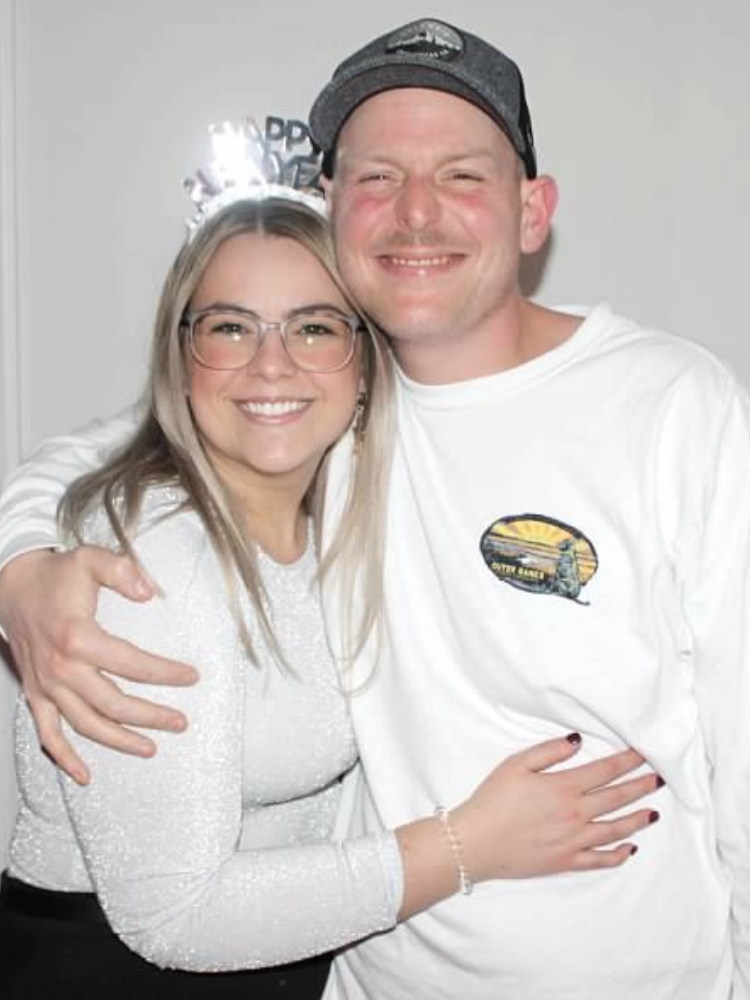
Finding a caregiver support group
We did a local, in-person support group, which was amazing. We found an online Hodgkin’s support group; that was a little triggering for Josh and I didn’t stay in it very long.
I did meet someone through that who was also a caregiver around my age. Her boyfriend is around Josh’s age and he had the same cancer, just stage 3. She has been such a grace in my life. She and I talk frequently. She validates so many of my feelings and I think I do the same for her.
I have a lot of friends here [and] we have a lot of family here, but talking to her is different because she is going through the same thing. She understands all of the emotions, mood swings, and everything that comes with life before, during, and after cancer.
I really appreciate everything that she’s helped me get through. Support groups definitely are something that I would recommend to anyone, in person or online.
Finding someone who can relate to you and you can relate to is really helpful. I joined some caregiver support groups virtually and reached out looking for a young caregiver caring for someone young. I actually got some backlash because people said, “Well, I’m not young, but I care for someone.”
My experience is so much different than someone who is 70. Navigating through all of that is not a typical life for people in their 20s. Finding someone around your age that you can relate to is so beneficial.
Discussing fertility options before cancer treatment
Josh and I had to talk about family planning and we haven’t lived a lot of our life yet. We started our marriage going to chemotherapy.
The doctors suggested freezing sperm before chemotherapy. We got the results that it was stage 4 [on] a Tuesday night and he was scheduled to get chemotherapy Thursday morning. It would be a day in between that he would be able to do this.
We want to have children, but treating the cancer was our top priority. We’ll worry about this later. We’ll hope for the best and see where it goes.
The doctor said he could push the treatment a few more days, but we weren’t comfortable with that. We wanted to get him into treatment as soon as possible to fight the cancer and move forward with that.
When we got married, I was able to pick an insurance plan that covers IVF. If we ever had to go down that road, it’s an option for us.
With the type of treatment that Josh got, it’s very likely that he will be okay. We can get his sperm tested to see what the levels are for fertility.
After treatment, you can’t try for at least a year. We’re just enjoying life now. We’ll see where that takes us and just hope for the best.
Learn about personal experiences with fertility options before & after cancer treatment »
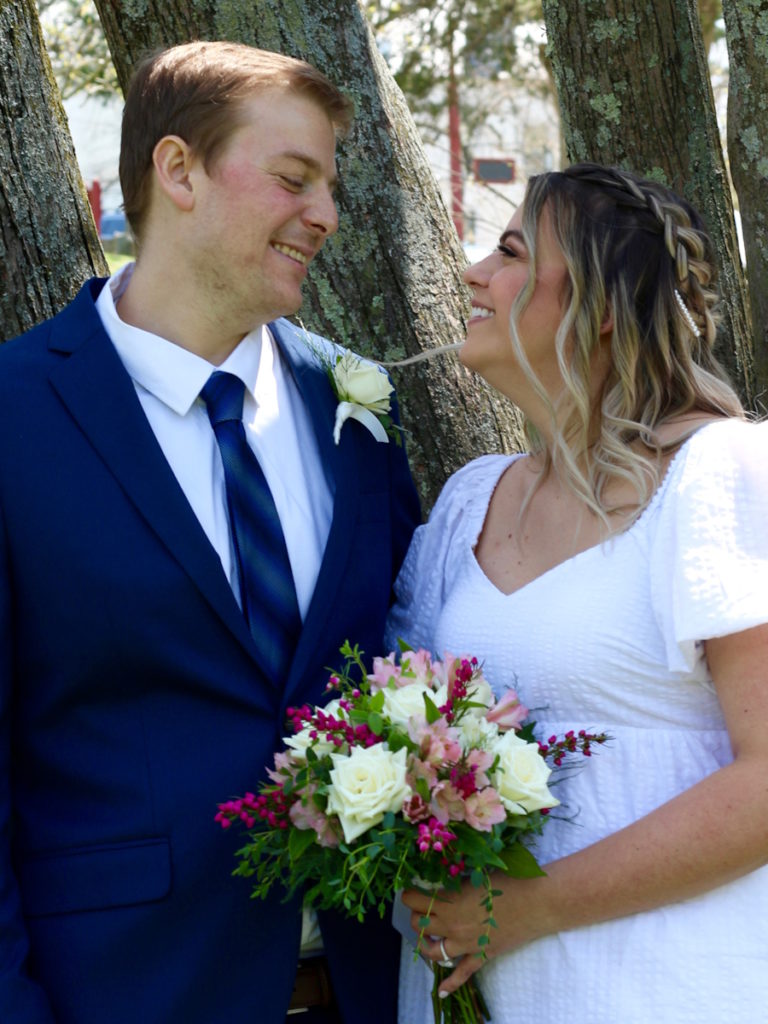
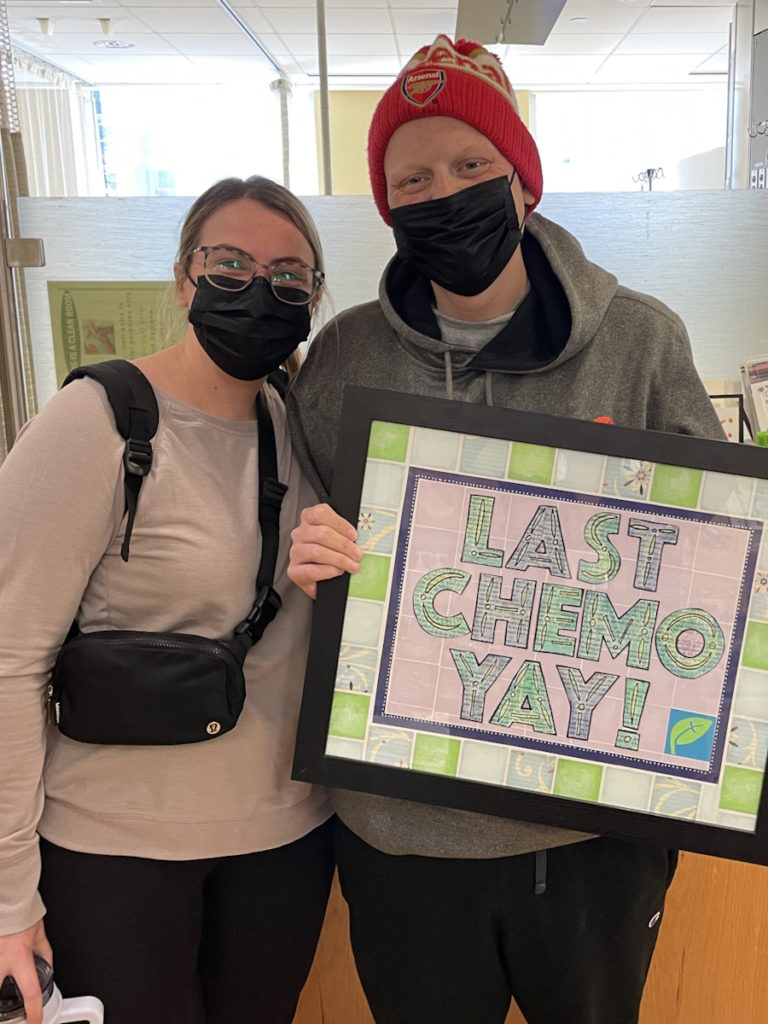
Words of advice to family caregivers
If you’re a caregiver, please ask for help. If anyone offers to help you, take it. People don’t know how to help you so you have to guide them and tell them what you need. Take help from anyone.
If you have the resources and are able to make your life easier, go for it. Things like a meal kit delivery service and grocery pickups.
We actually hired someone to clean our house on days [when] Josh was getting chemotherapy so we would come home to a clean house. It was one less thing for us to worry about. I would recommend that to anyone.
Try to remember that your loved one going through treatment is not themself. They’re getting a lot of medications put into their body. They’re angry, they’re sad, they’re depressed. Try your best to not take things to heart. They’re doing their best. You’re doing your best.
Journal. Do some self-care. Go to therapy. Any of those things would really benefit anyone, but especially someone going through such a hard time.
Try to take care of yourself. If your glass is empty, you can’t fill anyone else’s and that’s something that I wish I would have done more of.
Getting ahead of the mental health game is something that I would also recommend. If you’re going through treatment or just got a diagnosis and you’re receiving no mental health support, reach out about that. The social workers at cancer centers and hospitals are great. They will help you connect to any resources that you might need.
It’s also great to connect [with] someone who has been through what you’ve been through. Josh met someone through the support group. He was a patient of the nurse who led the support group. They talked a lot and could relate to each other and validate each other’s feelings. I think that was really helpful for him.
Something that really helped Josh was having a schedule. He basically had the same routine every day. He would shower at the same time every evening, watch a baseball game every evening, and go to bed at the same time. Having a routine, even though it’s something everyone does every day, really did help him manage in some way.
Brain games were good. I bought some crossword puzzles so he would do those. Helps with the boredom, too, because in between feeling like crap, you’re also bored. It also helps with the chemo brain fog.
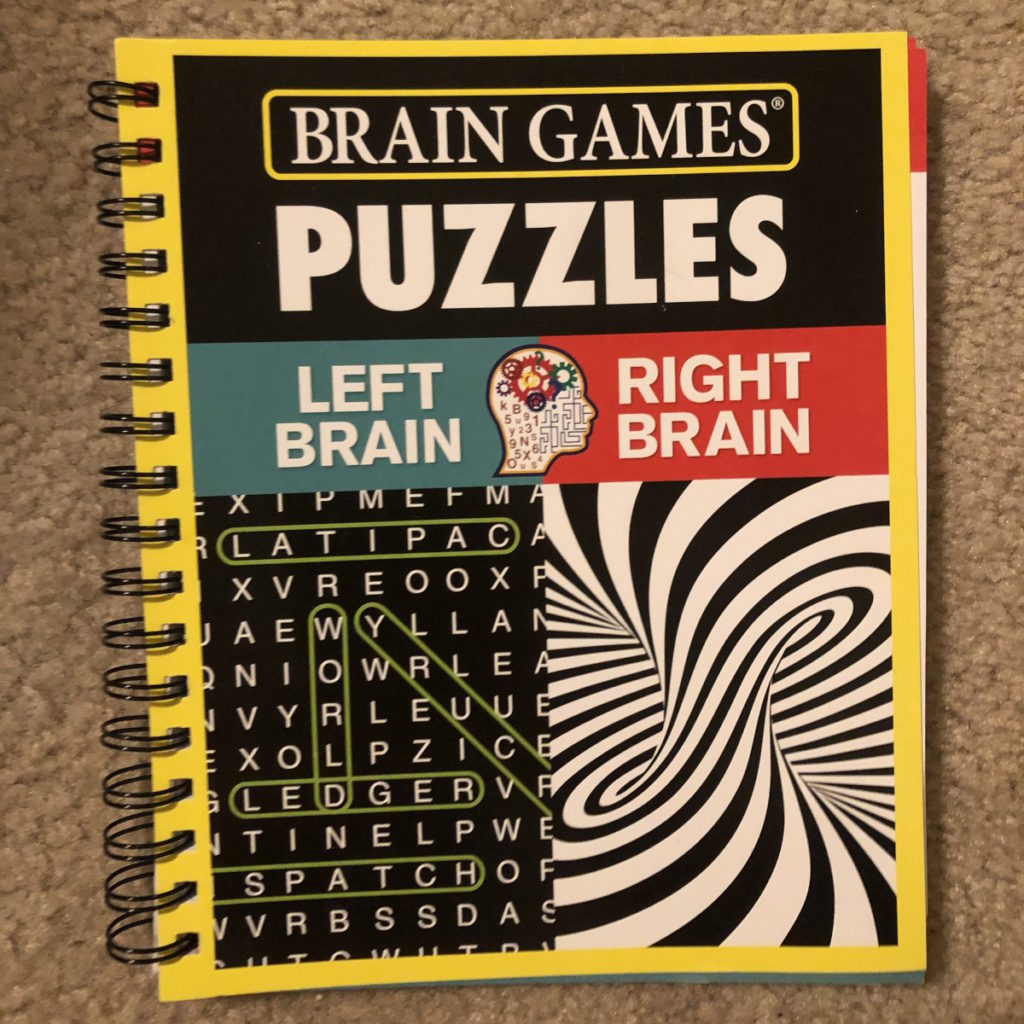
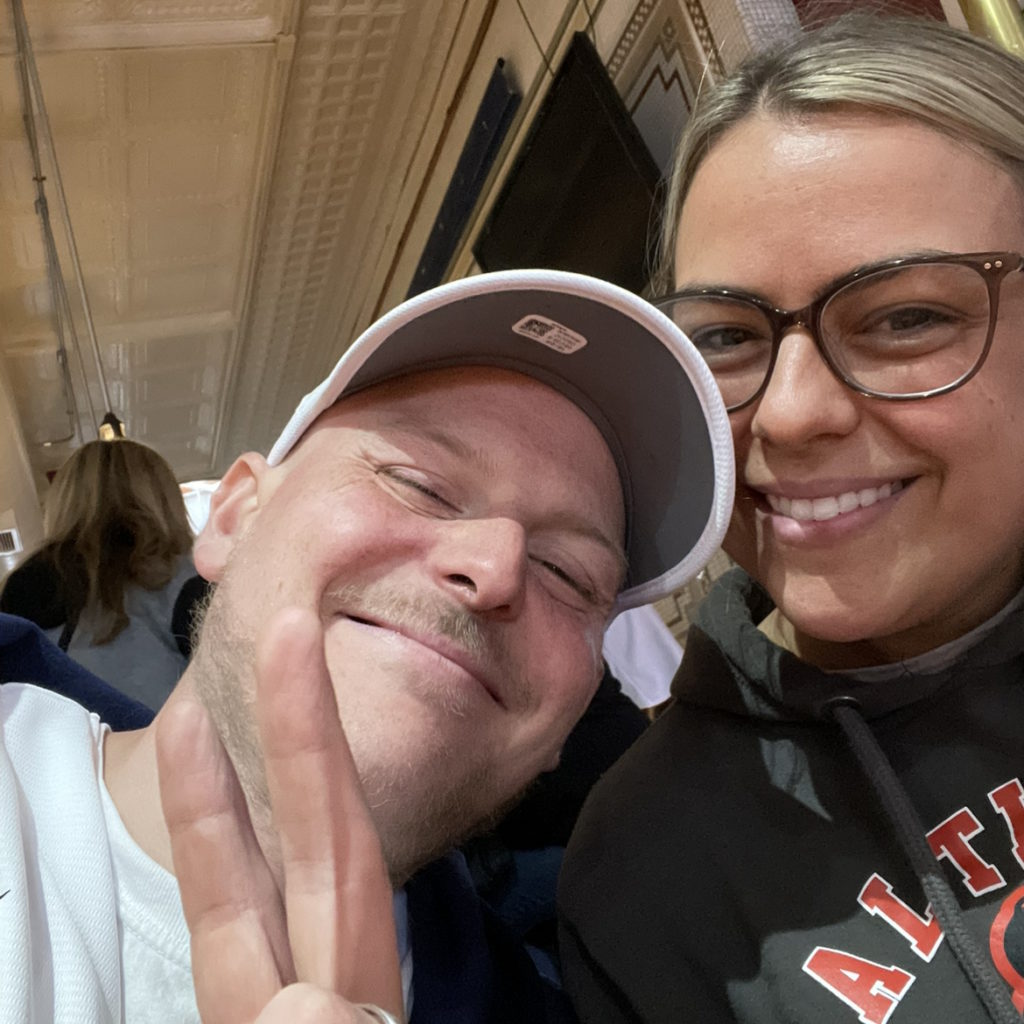
I would look up and send him videos of slower-paced [exercises], like elderly yoga and stretching. I don’t know if he ever did them. You’re sore, you don’t feel great, but it’s just light movement and they’re available on YouTube.
I found rubber hand stretching tools. It’s like a thick rubber band. You squeeze it and it helps with the strength of your hands. For the type of treatment that Josh was going through, neuropathy is pretty common. Keeping things moving I think could be helpful for some people.
When you find out that your loved one is going to go through this, your brain’s all over the place and theirs is, too, so thinking clearly isn’t always there. One way you can help is to try and prepare ahead of time.
Make sure you have a railing going up your steps because sometimes it’s hard to walk. We didn’t have a railing going up our steps. We didn’t know that we would need that so we were able to get that.
Josh wasn’t comfortable. I don’t think anyone who’s going through this is so buying things that bring comfort — new pillows, comfortable blankets, comfy clothes — would be a big help going into this.
A friend gave Josh a blanket and we still use it. My cousin actually knitted him this beautiful blanket and he took it with him to every treatment.
I want to find ways that I can stay involved and help. Josh and I had very different journeys through this. He doesn’t ever want to step into a medical facility again and I totally support that. But for me to try and wrap my head around this and to heal, I want to help other people.
I volunteered to make blankets for new patients where Josh got treatment. It was a fulfilling way that I could give back to people who helped us so much, cared about us, and treated us with such kindness.
If caregivers ever reach out and need someone to talk to, I would love to volunteer. I would love to pay it forward and help anyone that needs it.
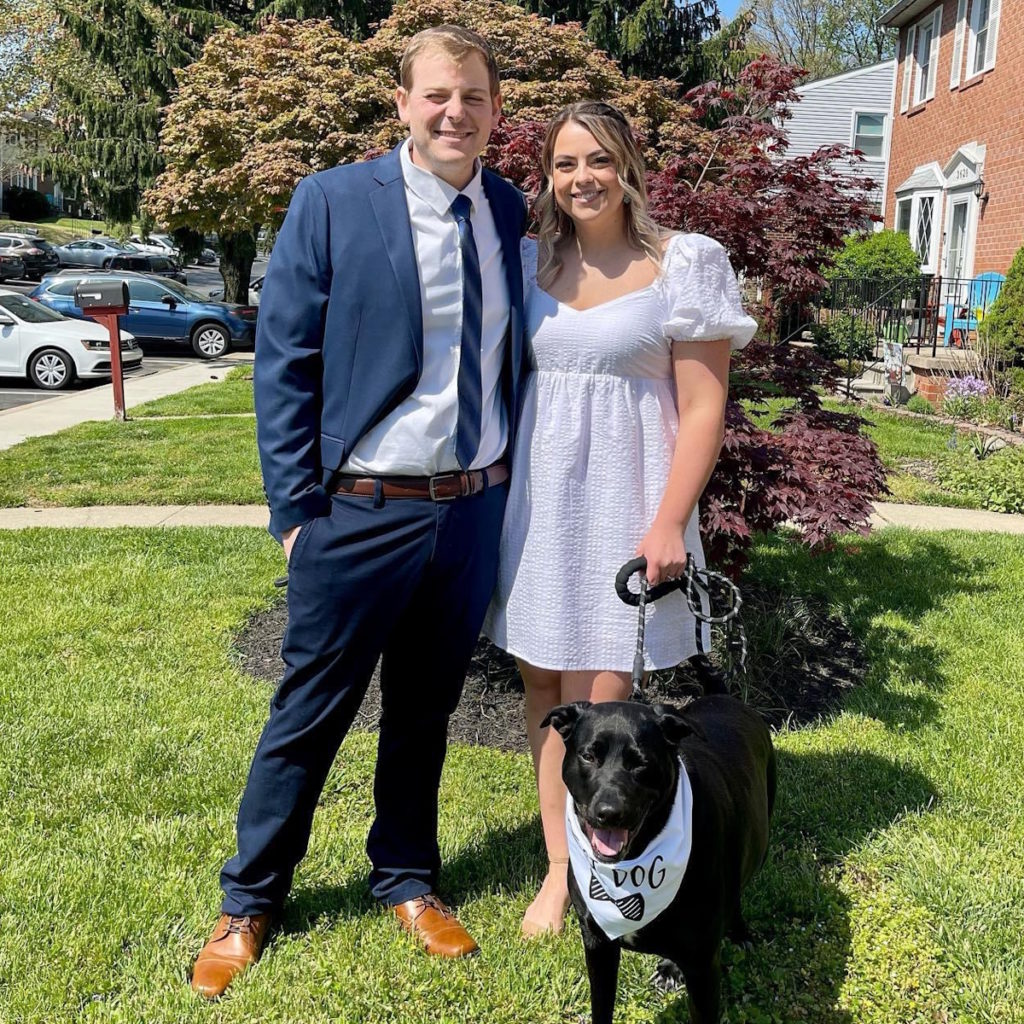

Inspired by Carley's story?
Share your story, too!
More Caregiver Stories
David Garrigues Ronda, Spouse of Laurent Gemenick, Bladder Cancer Patient
“Talk to family, talk to friends. Ask for help. Don't be alone. And above all, don’t miss any doctor's appointments.”
...
Lung Cancer Caregiver Series Episode 2: Stephen and Emily Huff's Candid Conversation
"We talked, and I remember saying, "What if we have kids and what if I die?" And you were like, "What if you live?"
...
Emily Huff, Spouse of Stephen, Lung Cancer Patient
“Emily's the reason why I’m alive today. The treatments have kept the cancer at bay, but she's the one who’s kept me living, breathing, and enjoying life.”
...
Blair D., Spouse of Brain Cancer Patient
“Find other people who are going through the same thing you are. This journey is very isolating and very lonely.”
...
Nat G., Spouse of Bladder Cancer Patient
“You have to become selfless as a caregiver. You have to assure that person that you are there for them.”
...
Kyle Appleford, Spouse of Lung Cancer Patient (Metastatic) with No History of Smoking
“Ask for help. Don’t be too prideful to accept the help. I wouldn’t be here without all the support from family and friends.”
...
